VSU Doctoral Class Introduces Education History Firsthand: Students Conduct VIA Oral History Interviews
In the fall of 2018, Dr. Kristal Clemons and her History and Philosophy of Education (EDAS 700) class at Virginia State University (VSU) conducted seven oral histories related to the Virginia Interscholastic Association. The course is offered as part of the the Educational Leadership and Administration doctoral program to guide inquiry into the historical, philosophical, cultural, educational, and social context of schools in society.
For the doctoral students, conducting interviews about the VIA gave them a deeper understanding than most texts could offer on the history and politics of education.
Through the many stories I saw common themes of perseverance, courage, endurance, love and grit. I was honored to hear of the strength of our people to see it through. I learned that our communities were stronger than ever and we were able to look out for one another and take care of our own needs. — Ja’Van Jefferson
The oral history assignment for the doctoral students had two parts. First, the students conducted a primary source analysis where they selected a primary source from the VIA Story website. They followed a primary source analysis protocol provided by the instructor and wrote a two to three page analysis of that source.
Then they conducted an oral history interview related to the Virginia Interscholastic Association (VIA). They had to find a former student from any of the schools affiliated with the VIA. They were instructed to consider contacting relatives, colleagues, church members, and friends to see who might meet these specific criteria.
Here are the people they identified.
| VSU Student | VIA Student | VIA School / Year |
|---|---|---|
| Nahlaa Alsilifh | Griffin Eunice | JEJ Moore High School 1959-1963 |
| Adrian Chatman | Abraham A. Tucker | E.W.Wyatt 1967-1969 |
| Latorial Faison | Rev. Dr. Lillie AdkinsFaison | Riverview High School 1963-1967 |
| Ja’Van Jefferson | Esther Janice Faison Manns | Riverview High School 1965-1969 |
| Marseille Maxey | Mattie Hicks-Drewery | Halifax Training School 1945-1949 |
| Shaneka Rose | Deaconess Dorothy J. Graves | Sussex County Training School 1952-1955 |
| Bianca Taylor | Katie Gray-Whitfield | Riverview High School 1960-64 |
The interviews focused on information related to the participants' experiences with four areas of the VIA — associations, academics, athletics, and the arts. Students transcribed and analyzed their oral history. They created power points and presented their work at the end of the course at a public event on December 1.
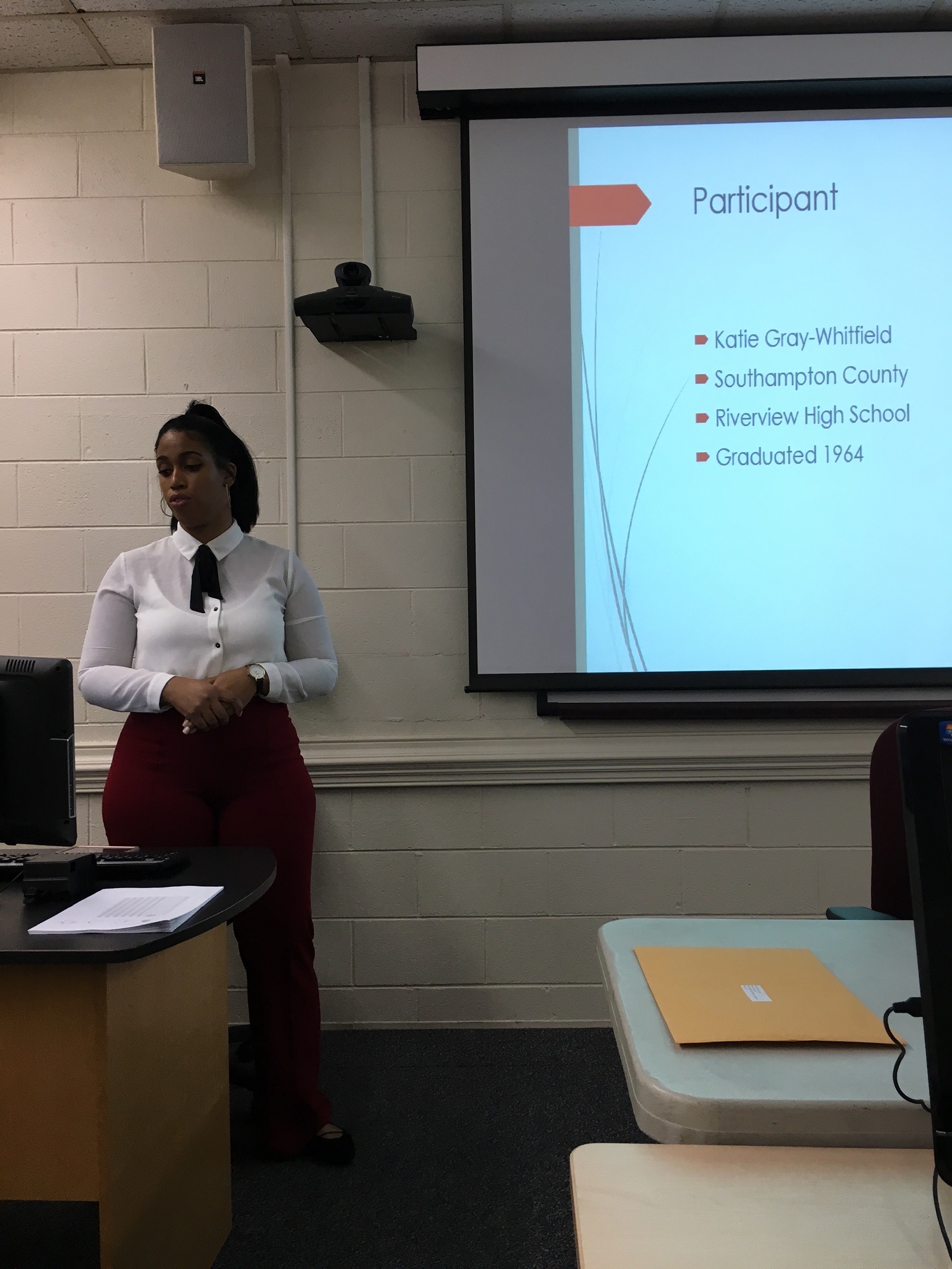
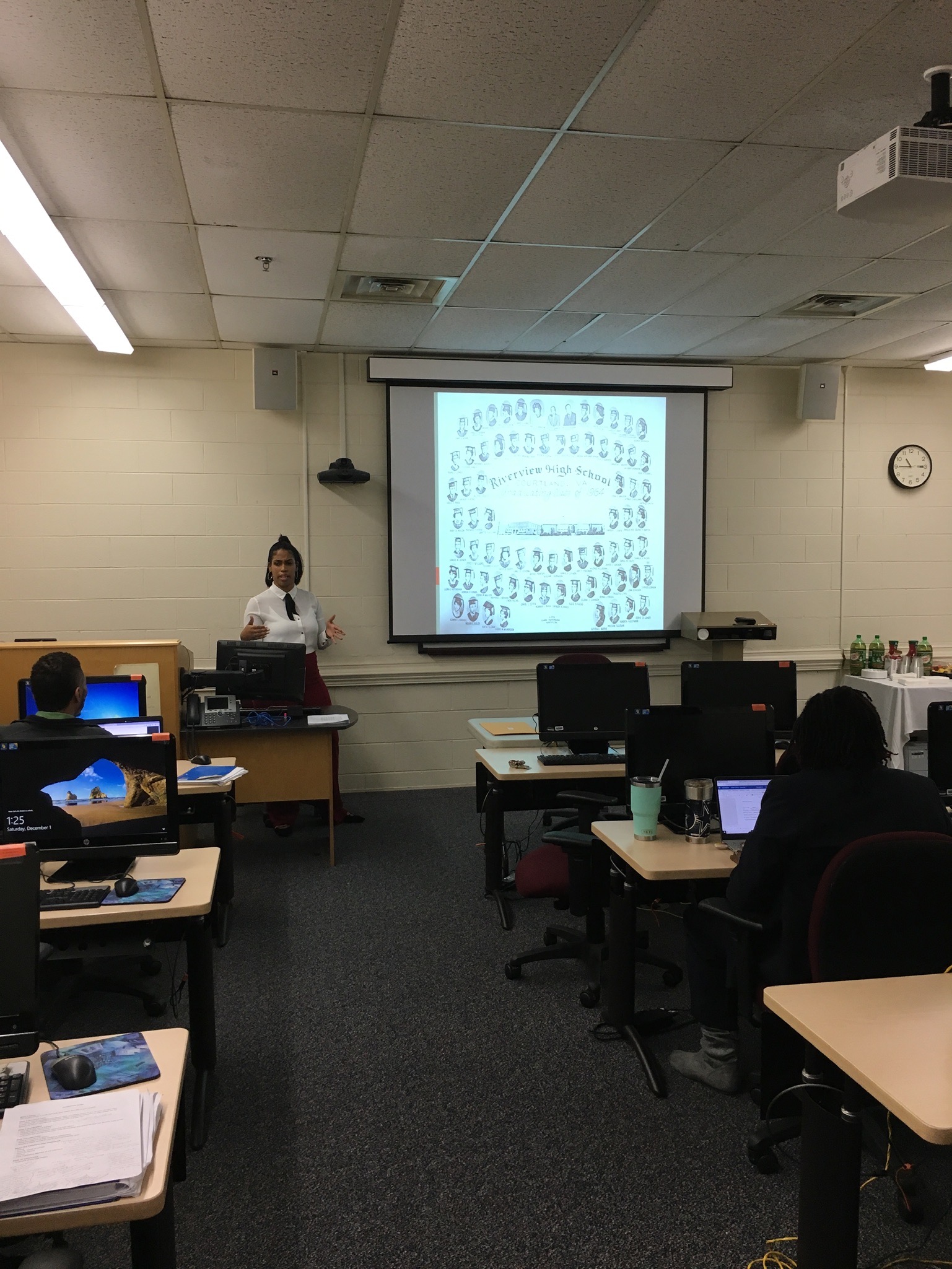

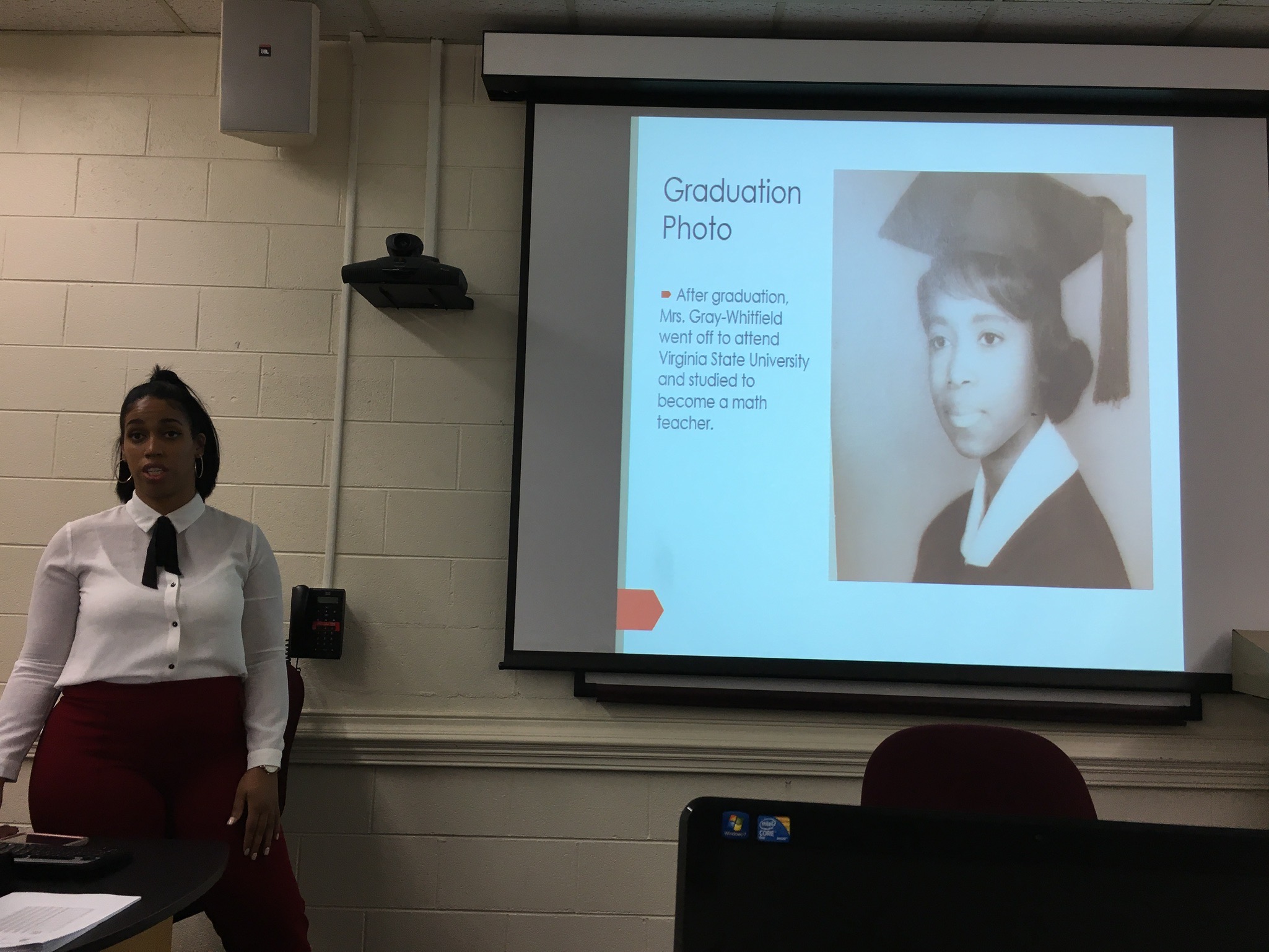
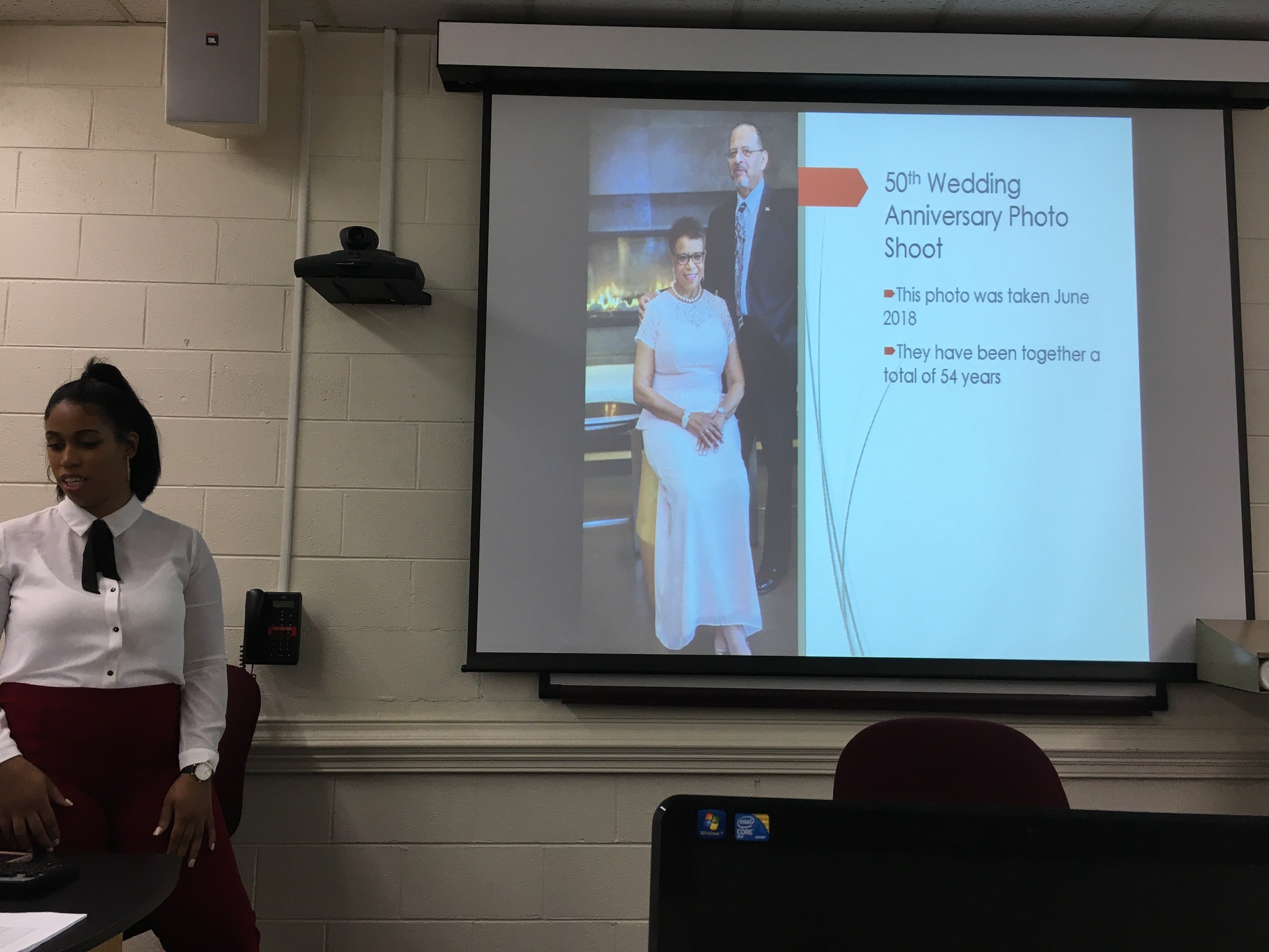
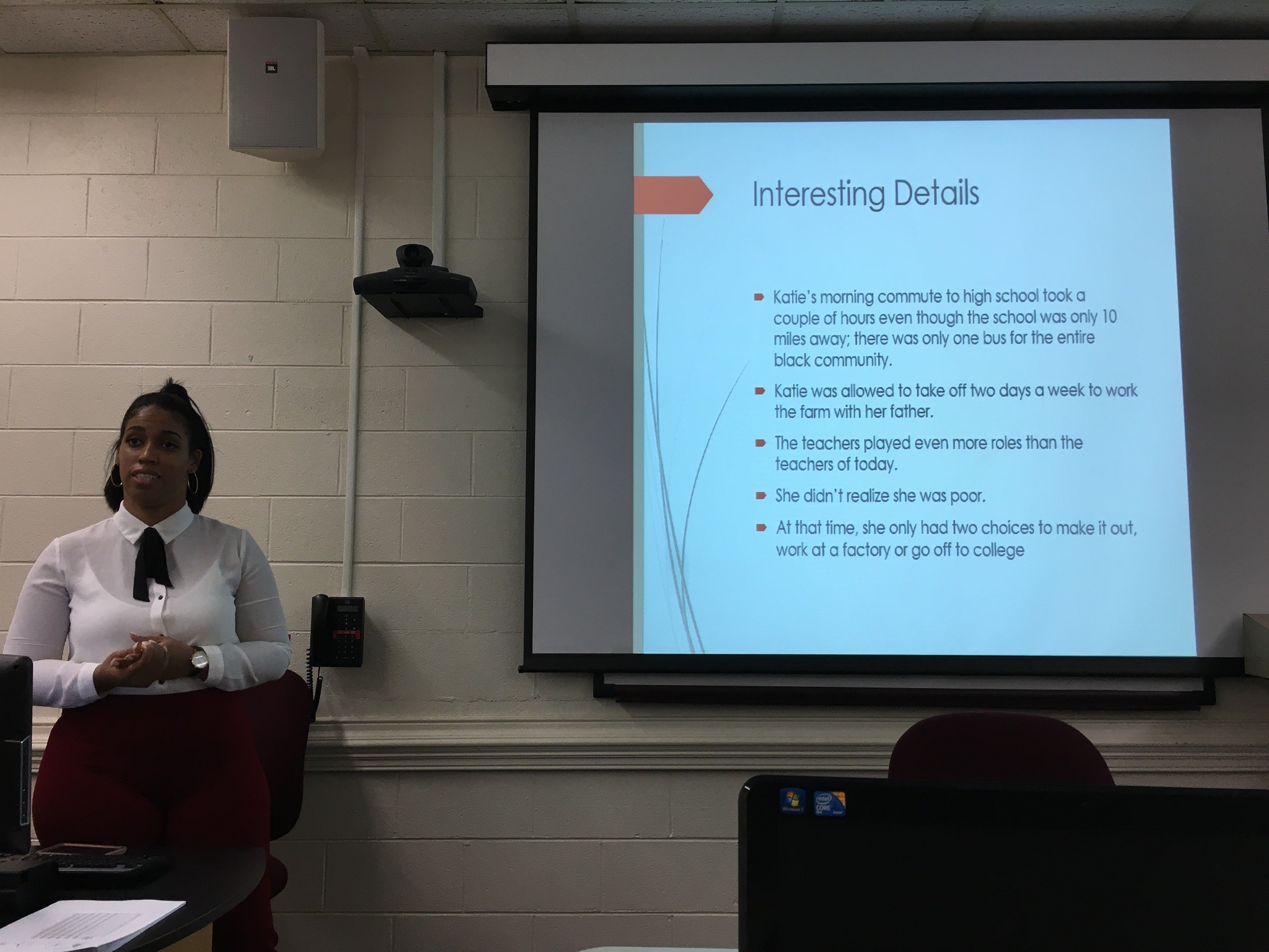
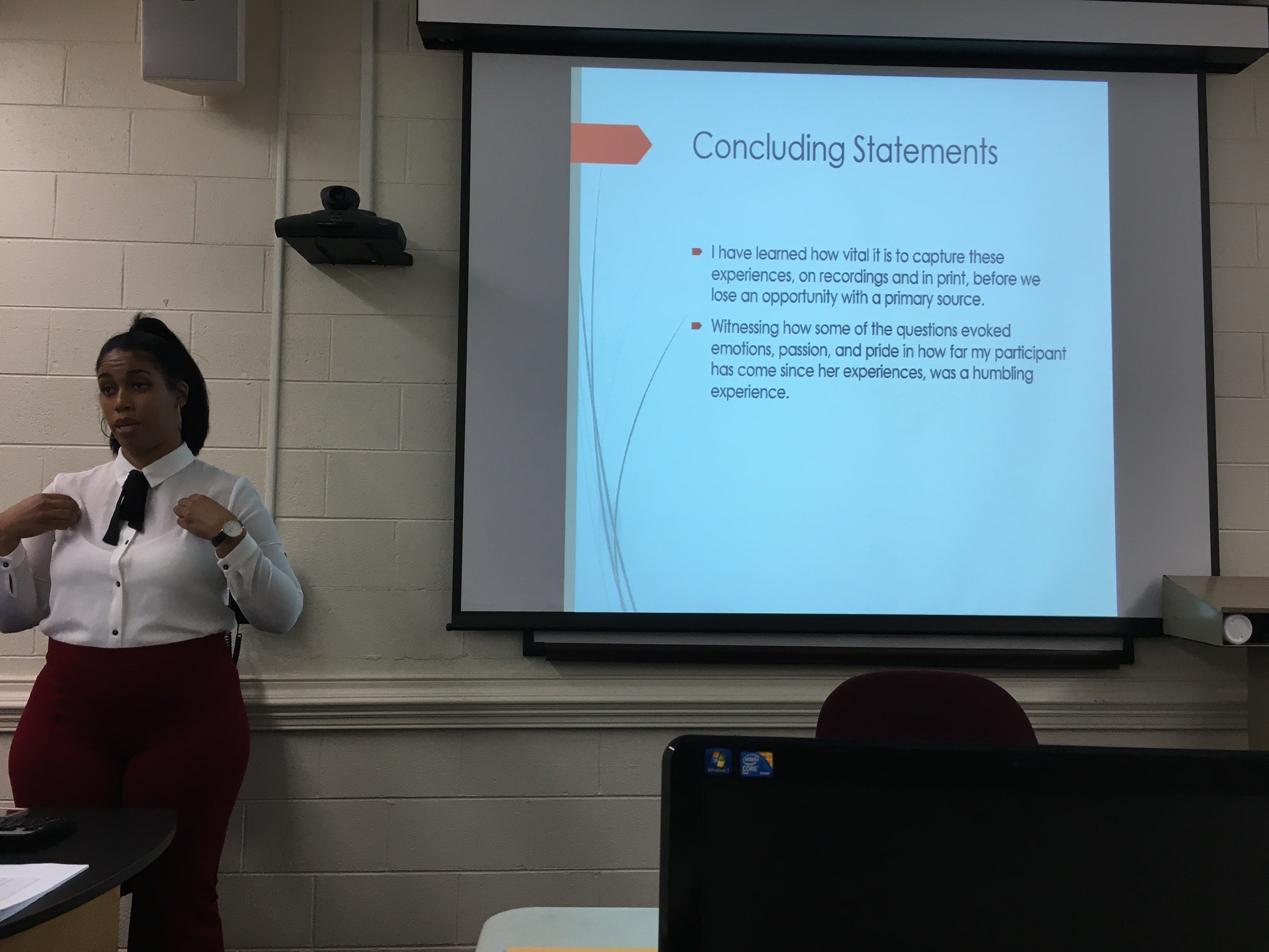
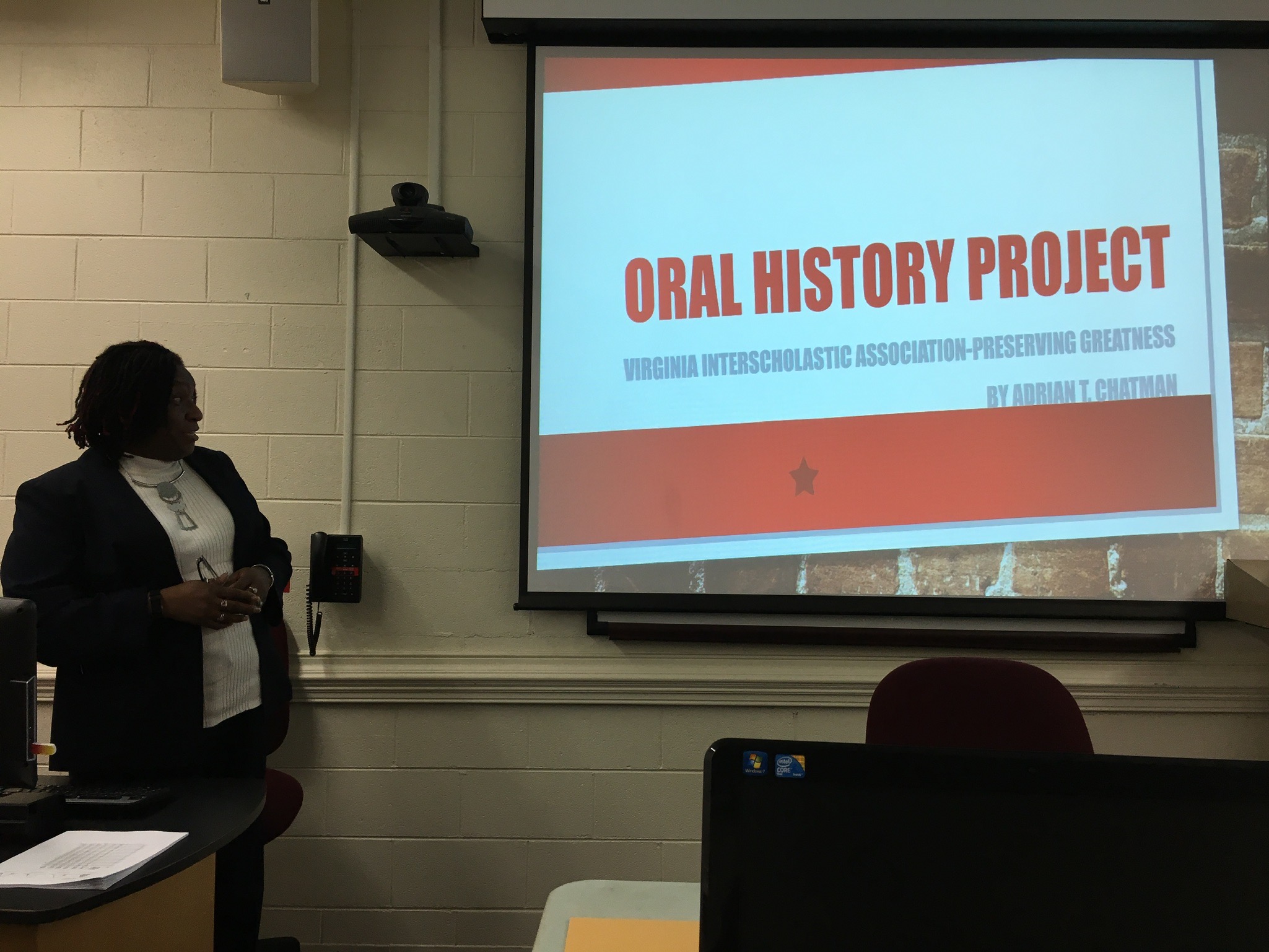
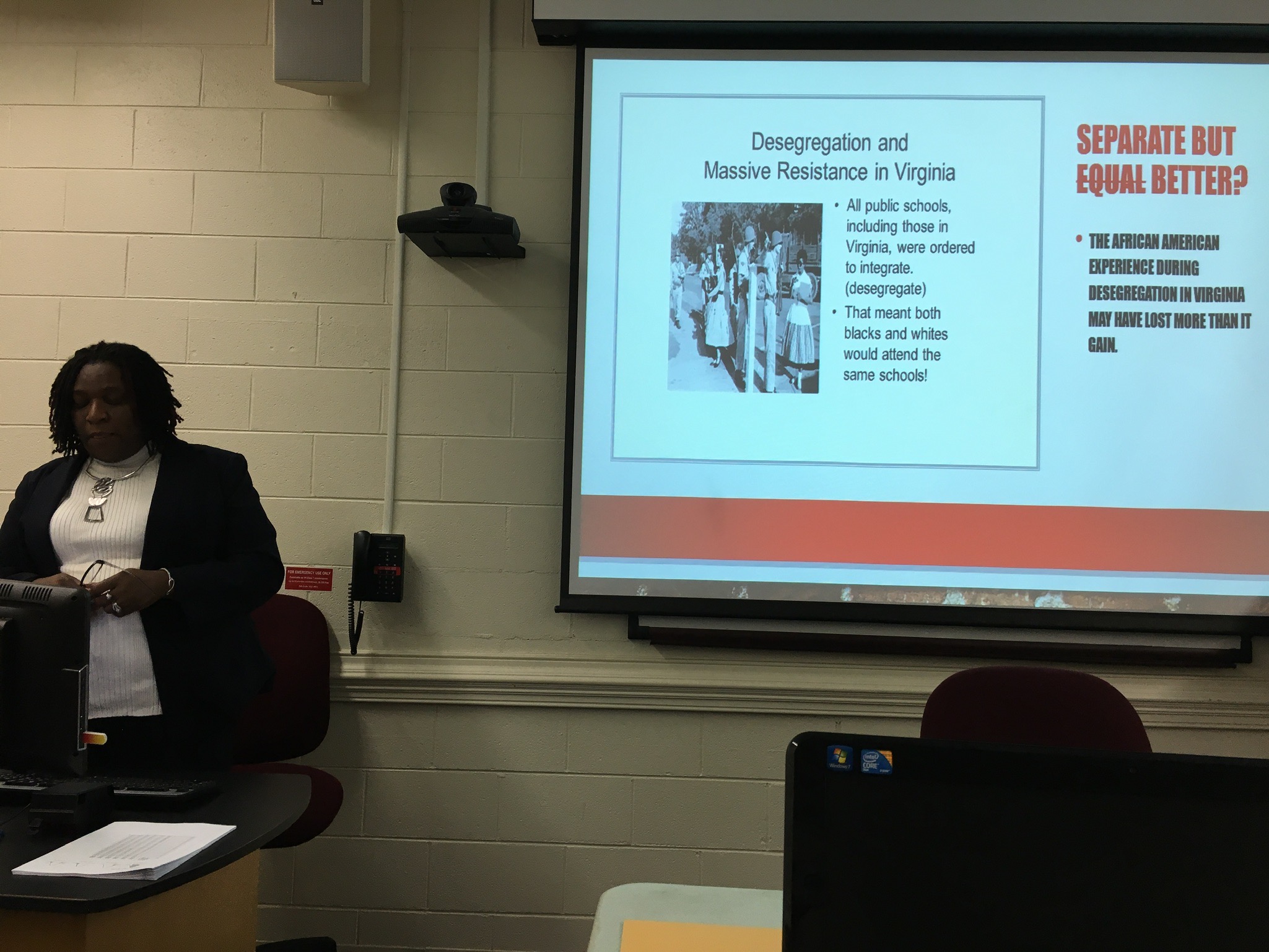

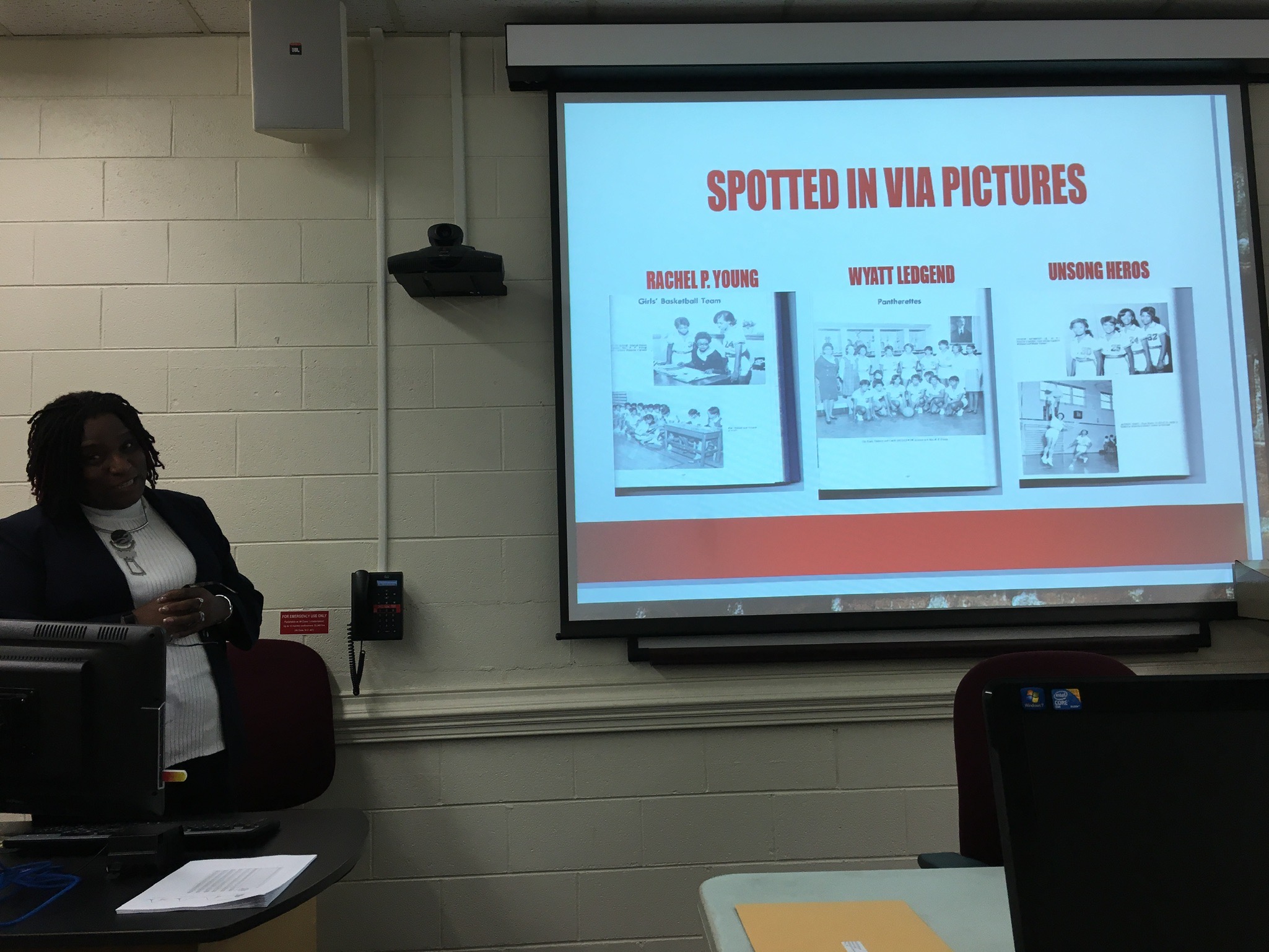
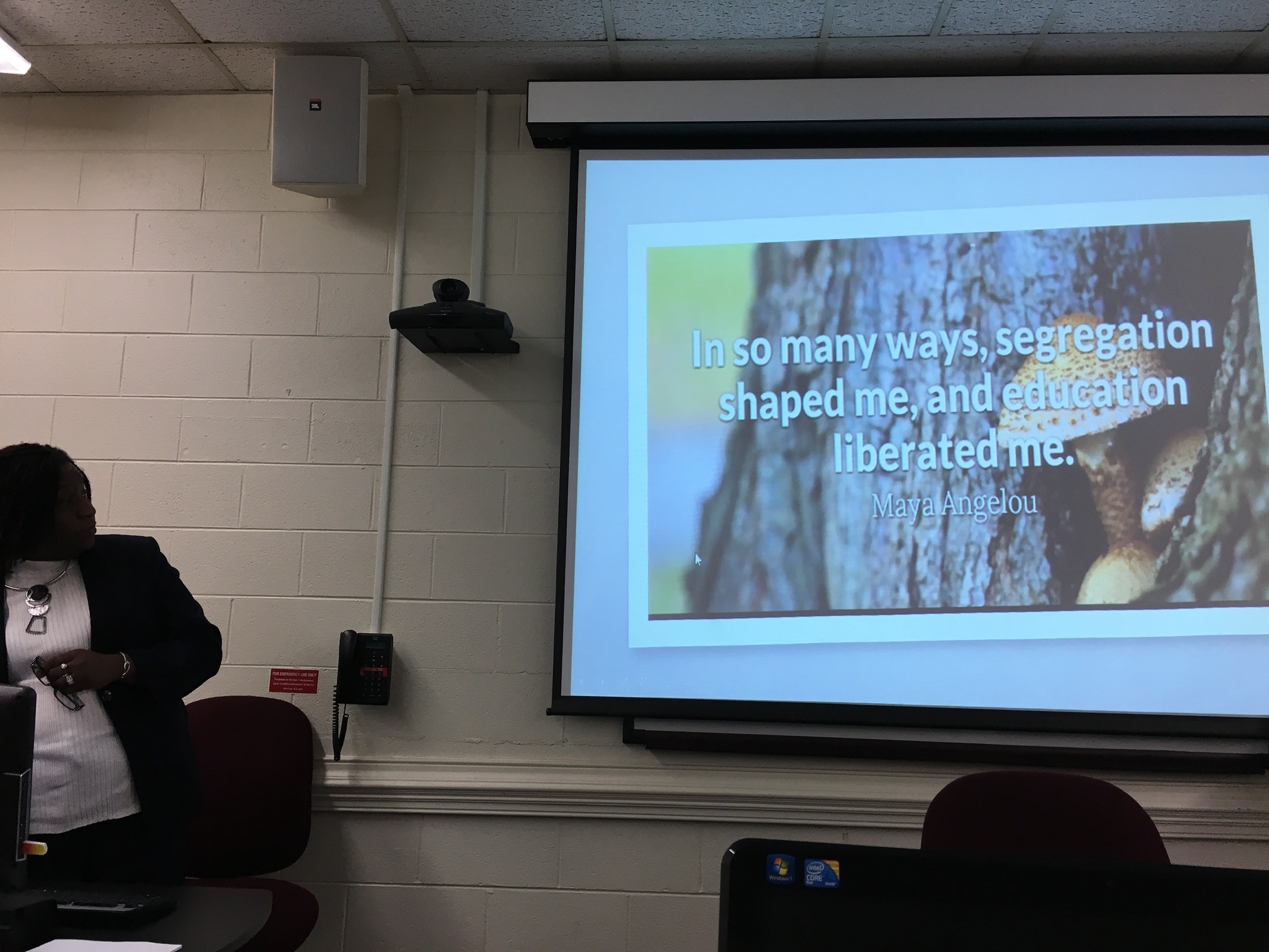
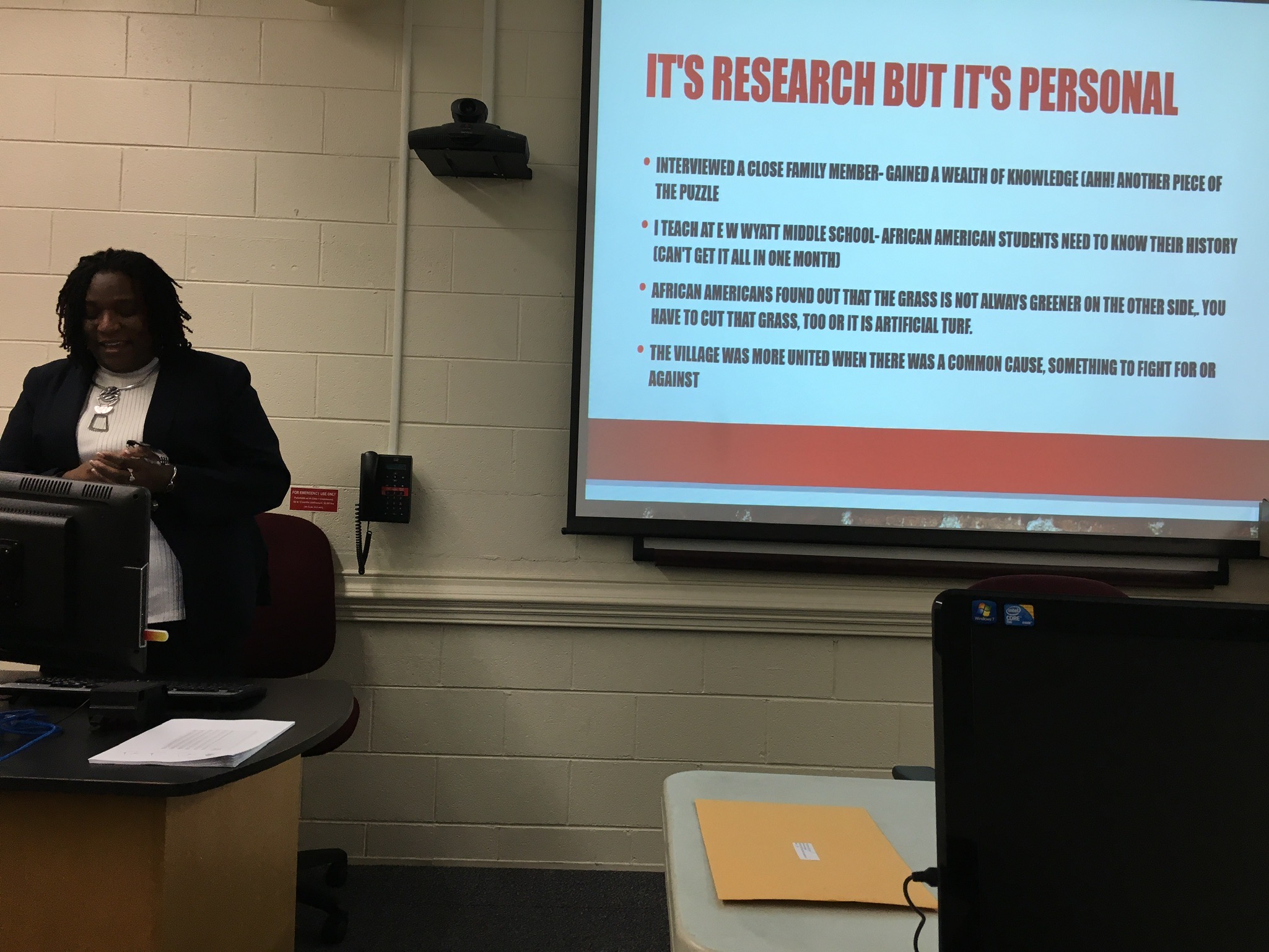
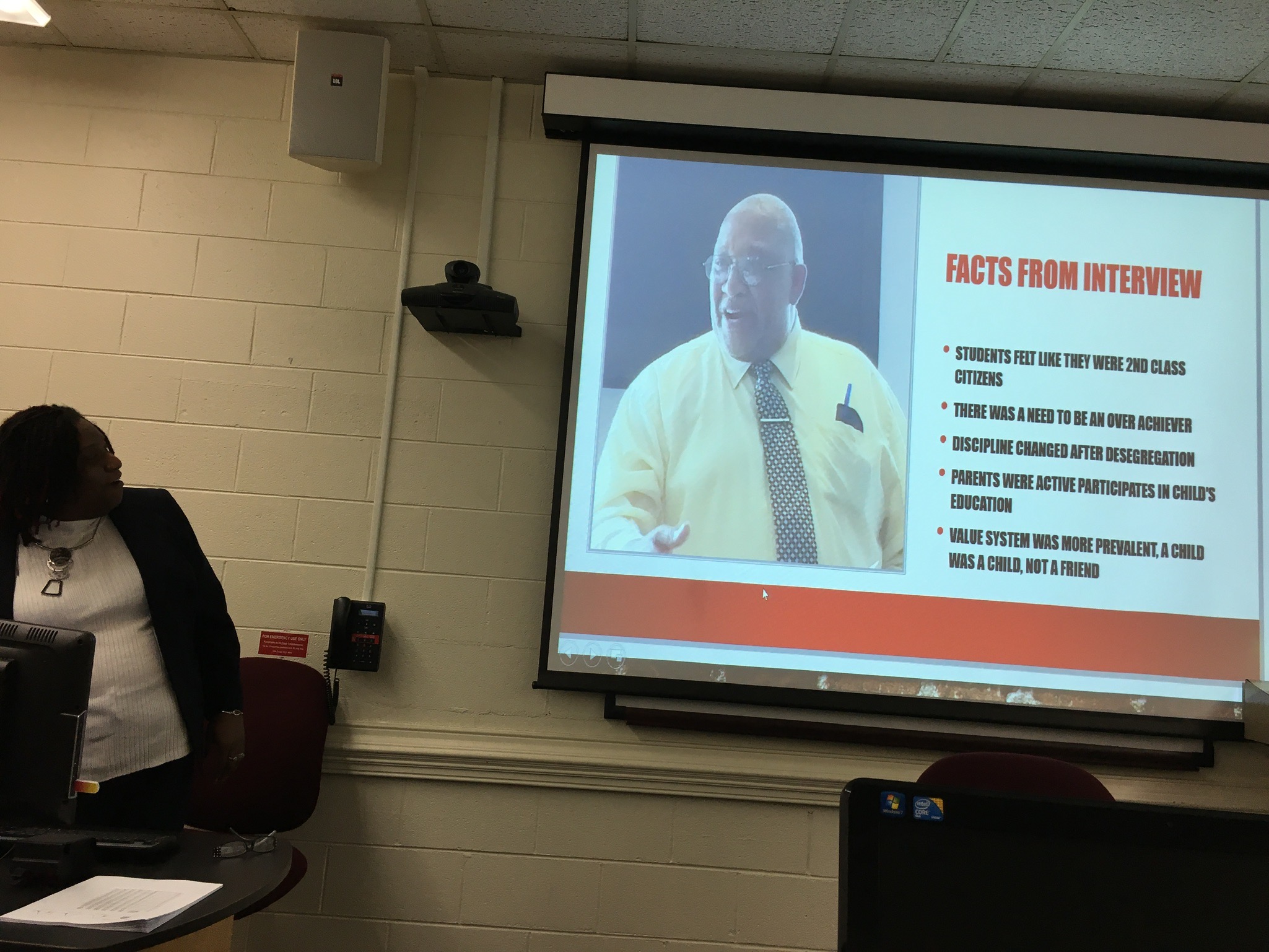
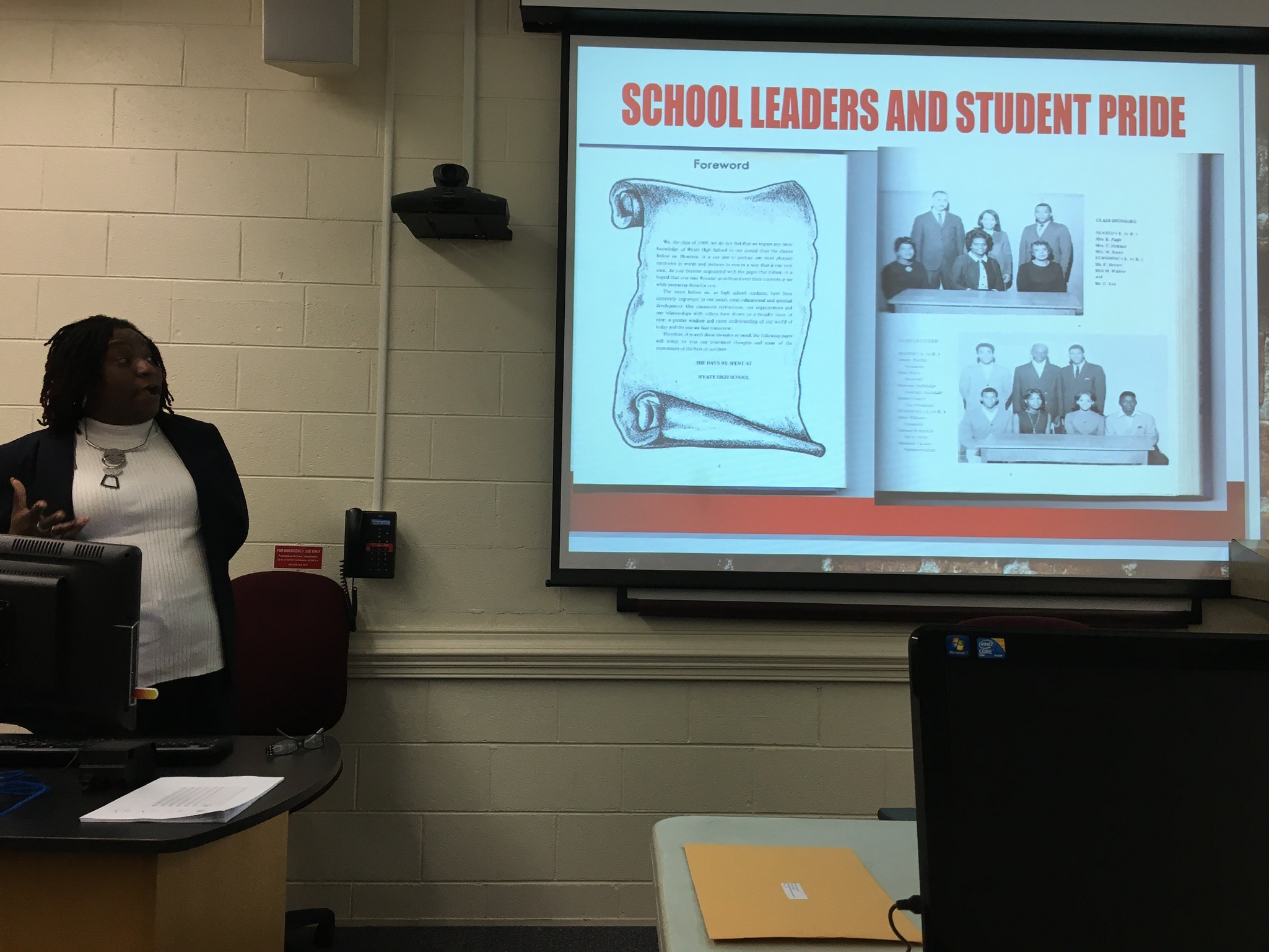

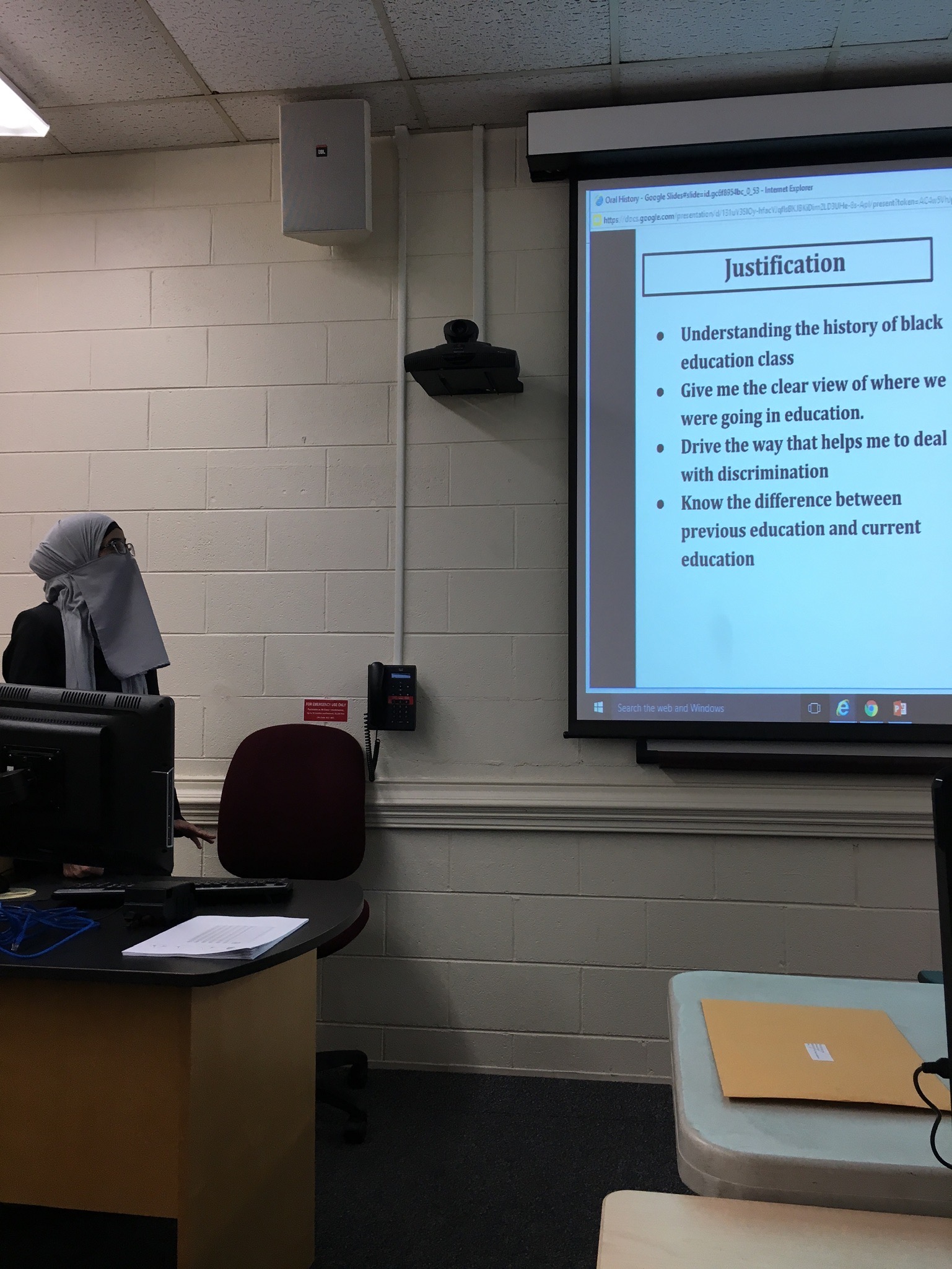
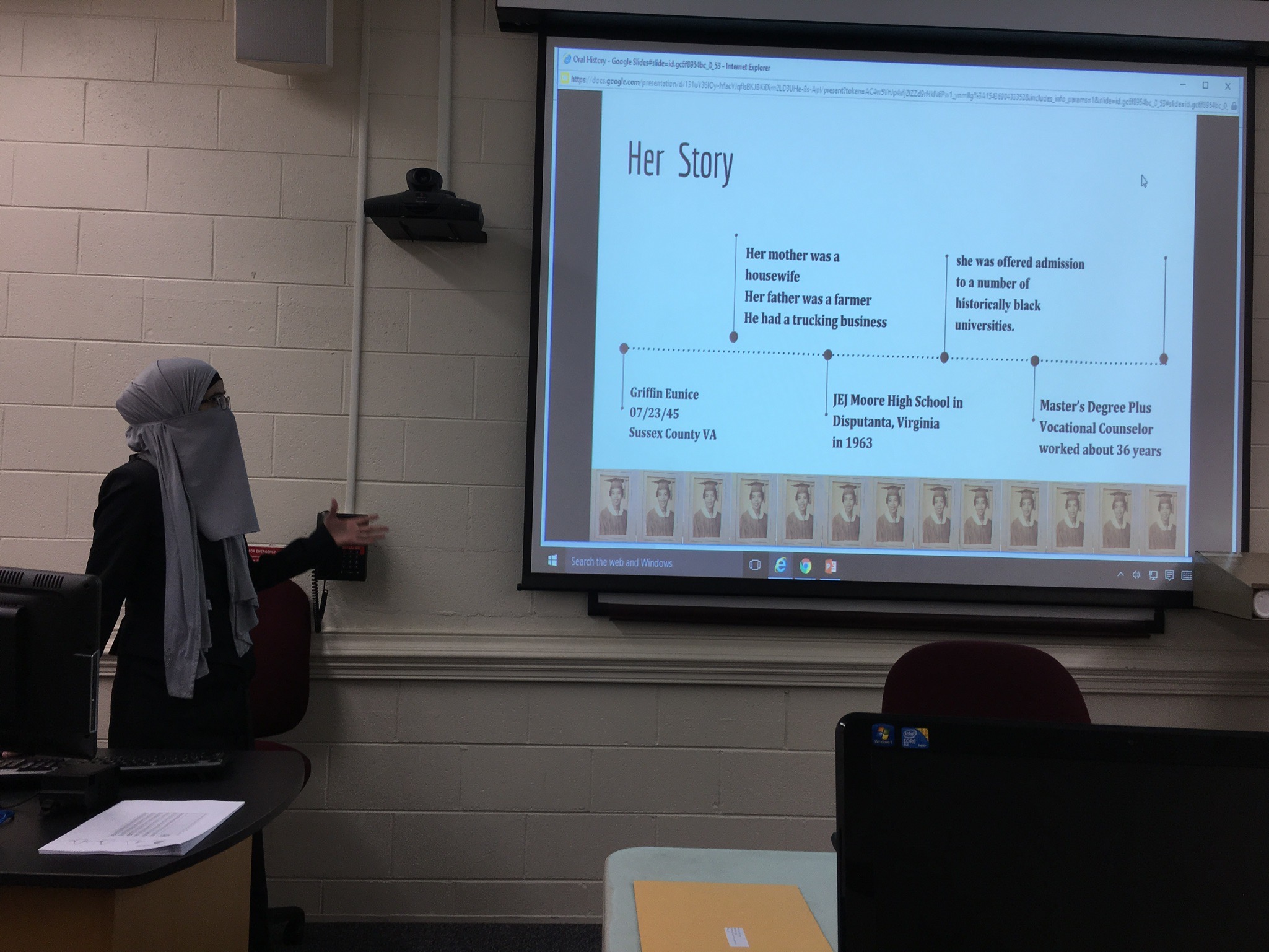
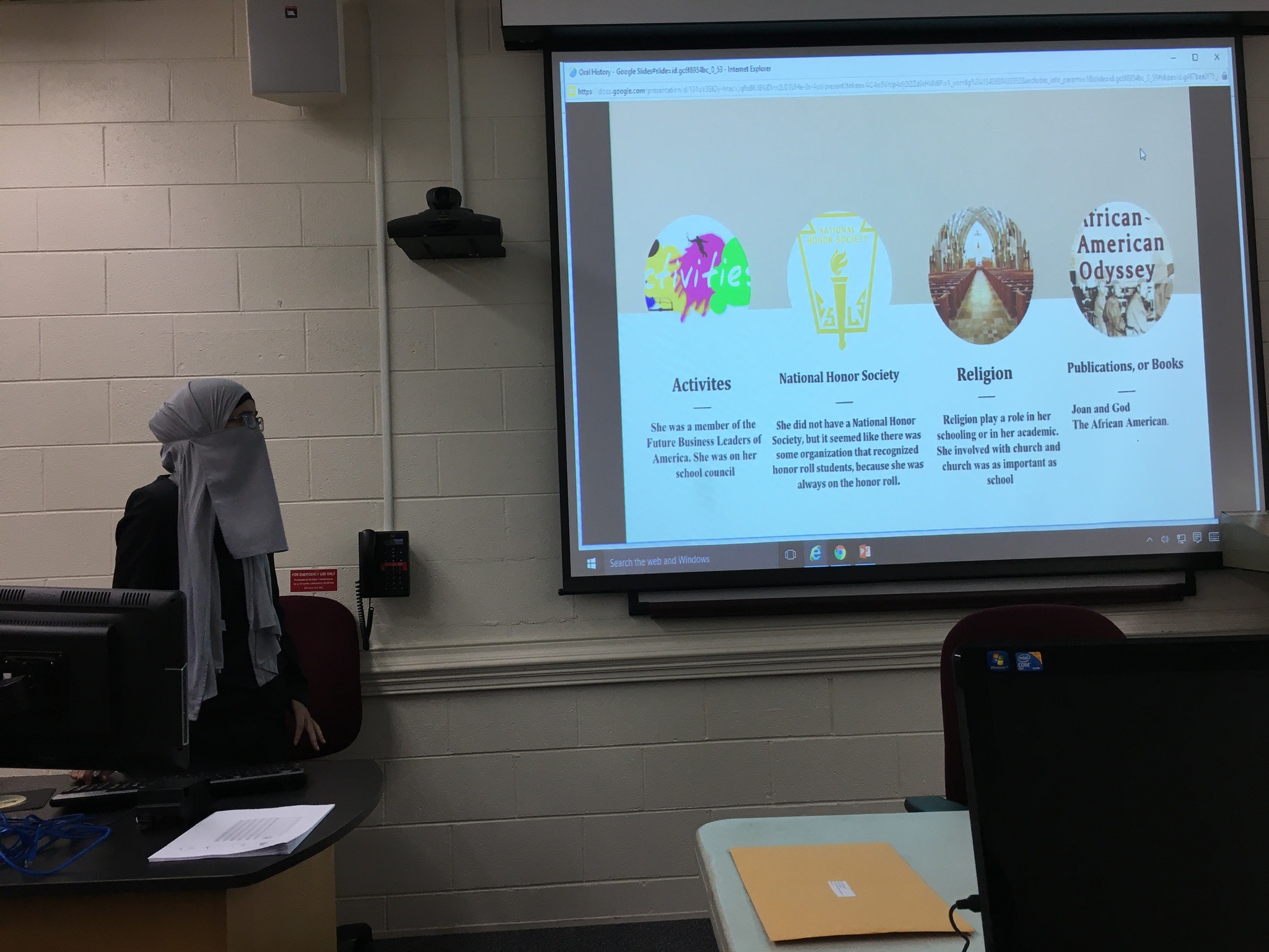


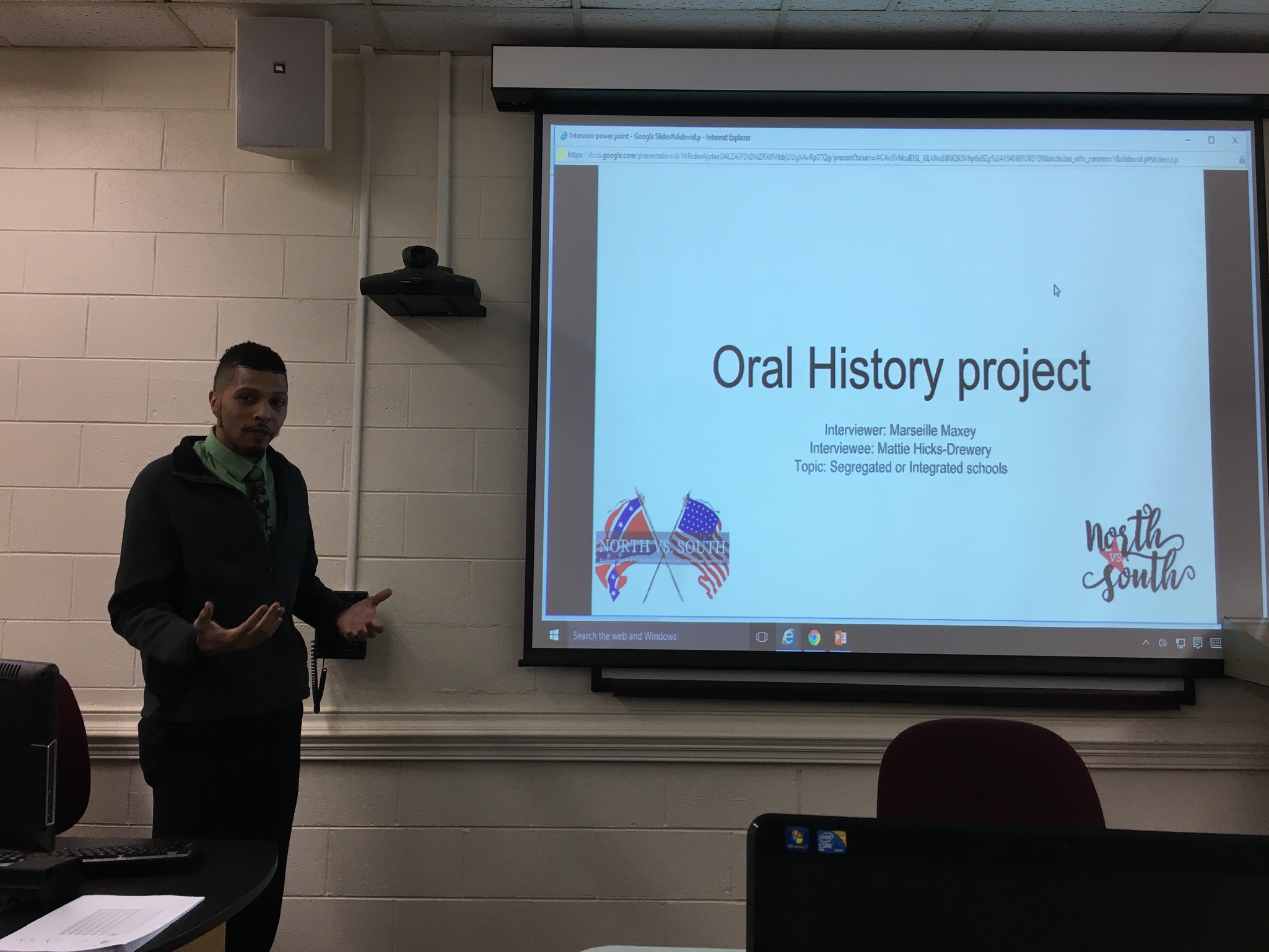
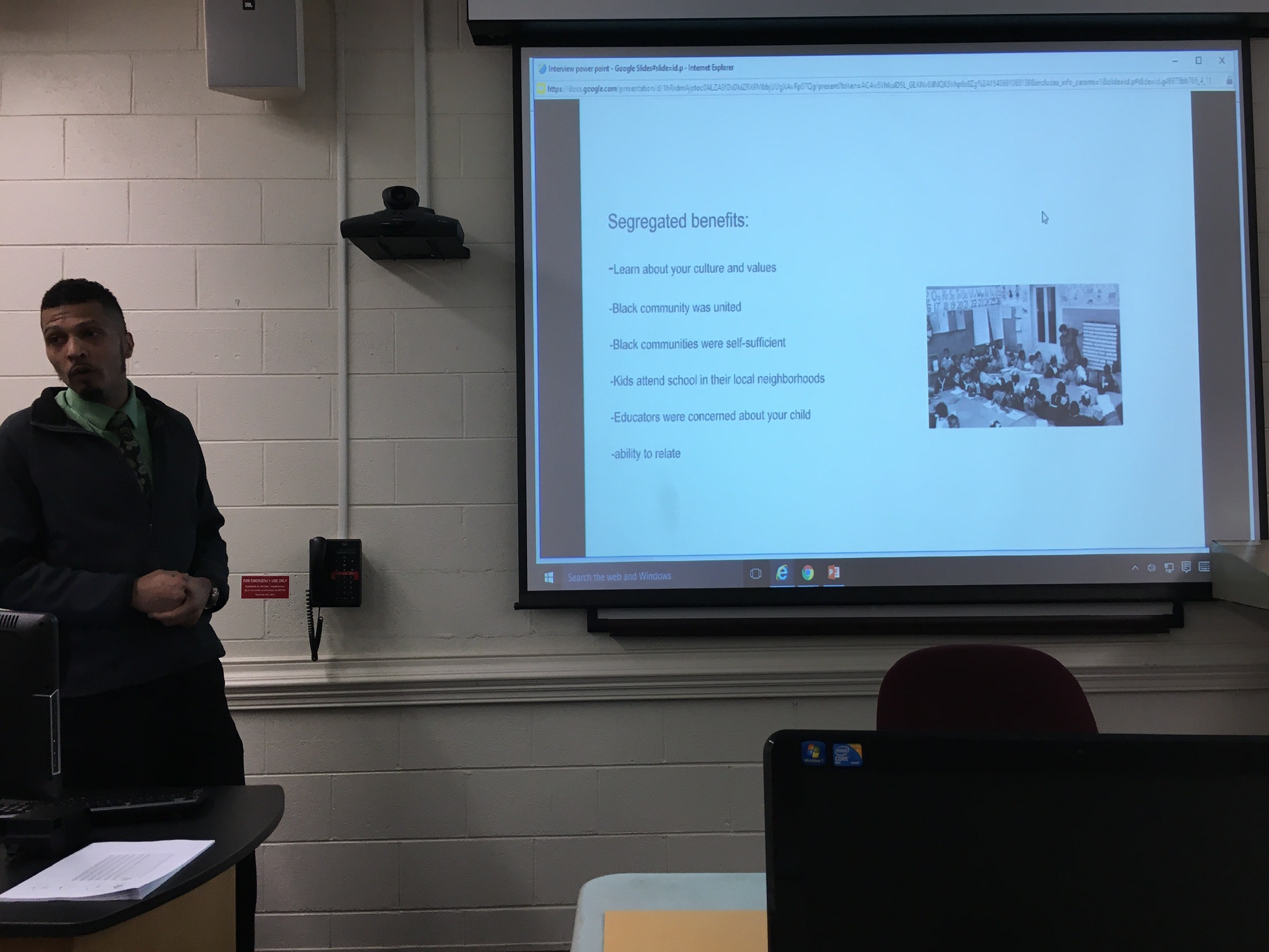
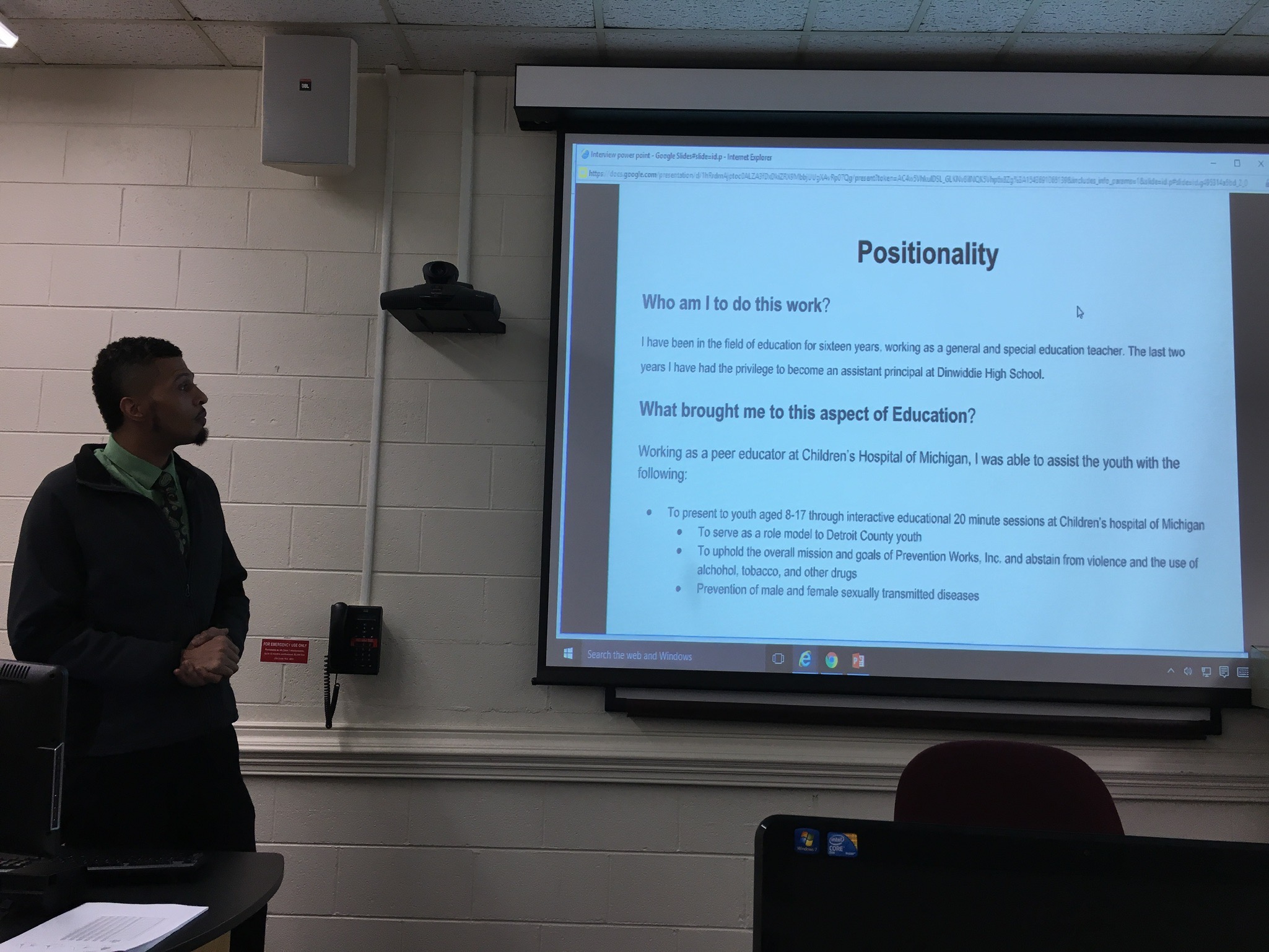


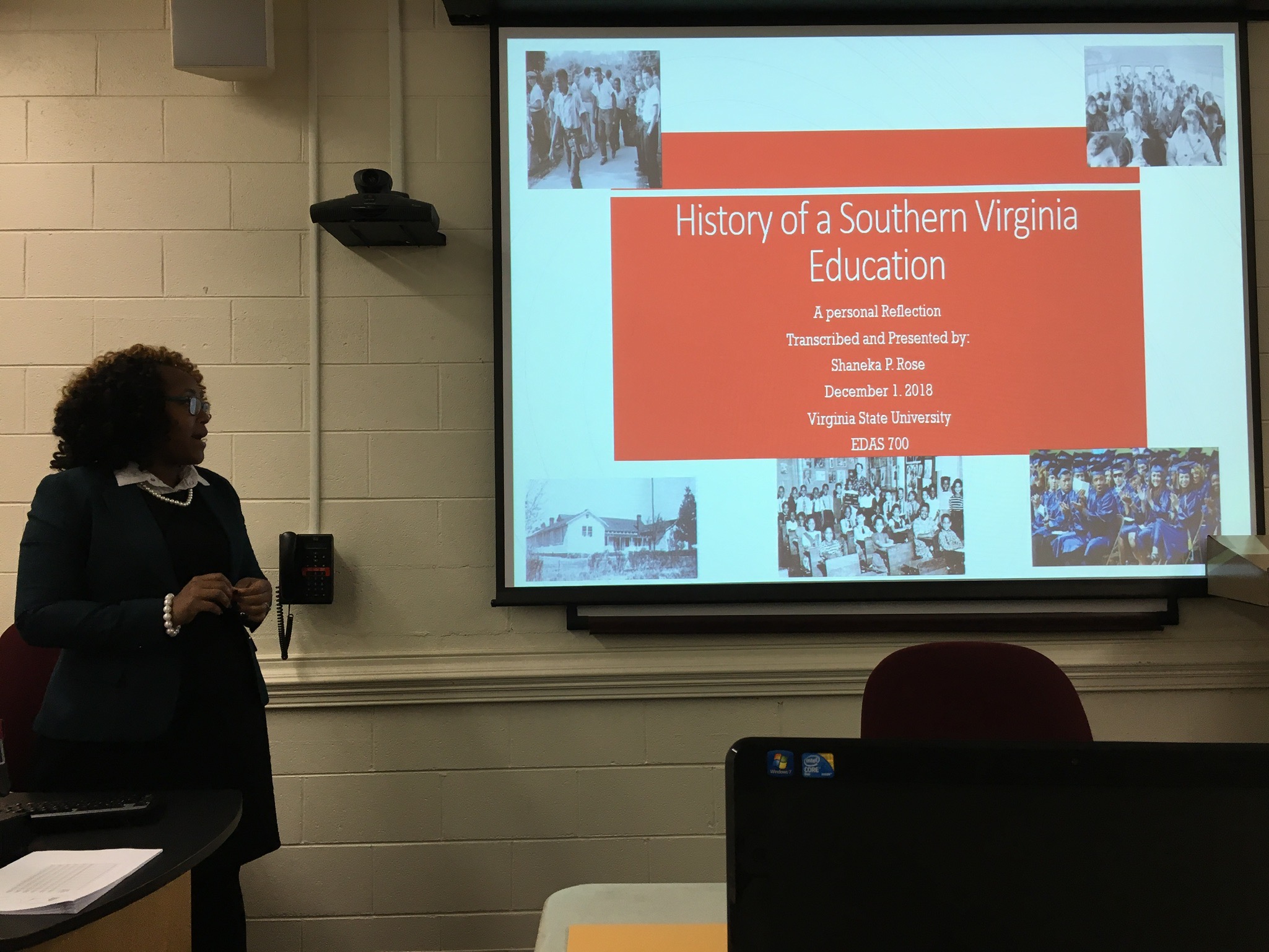

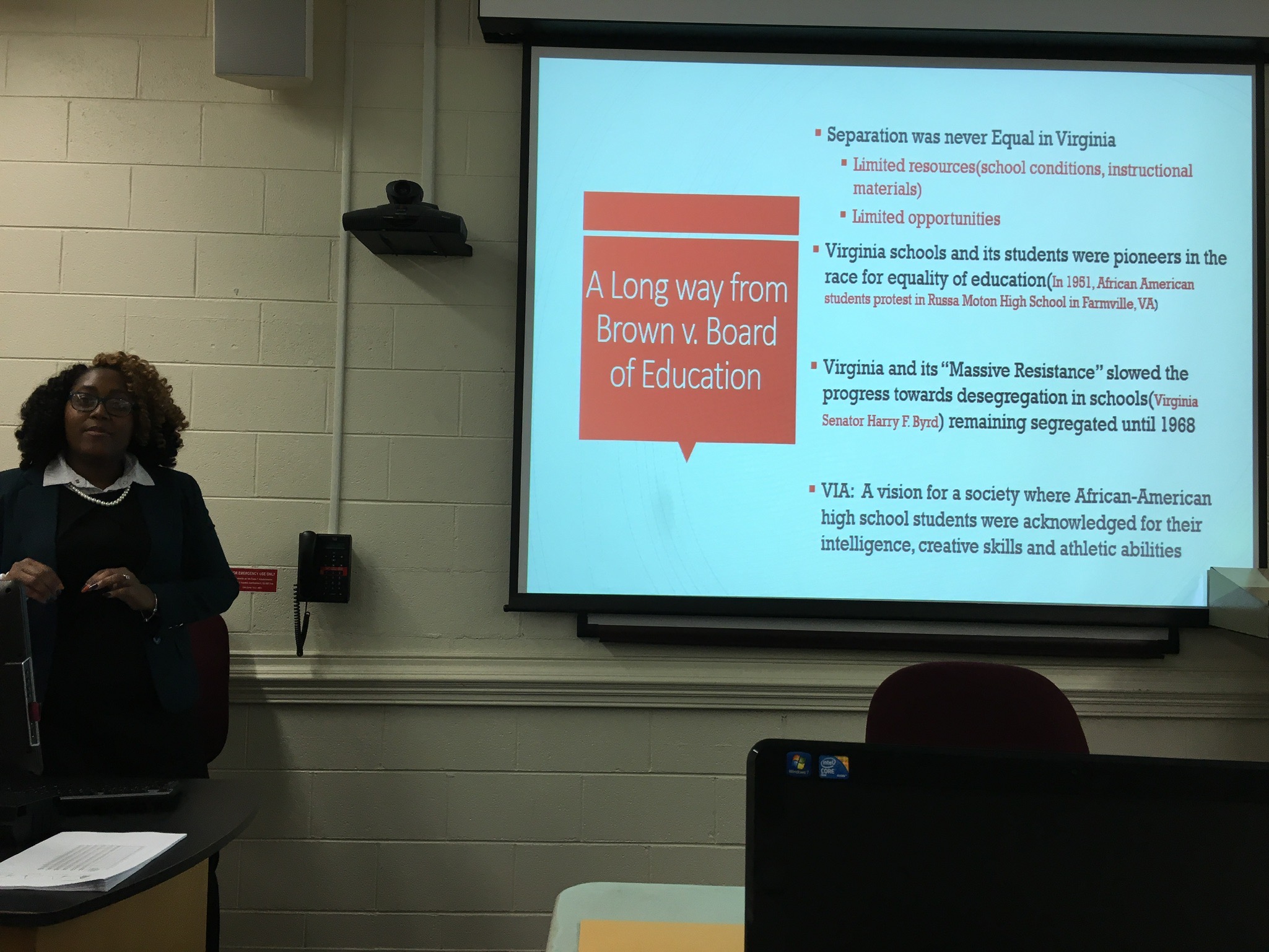
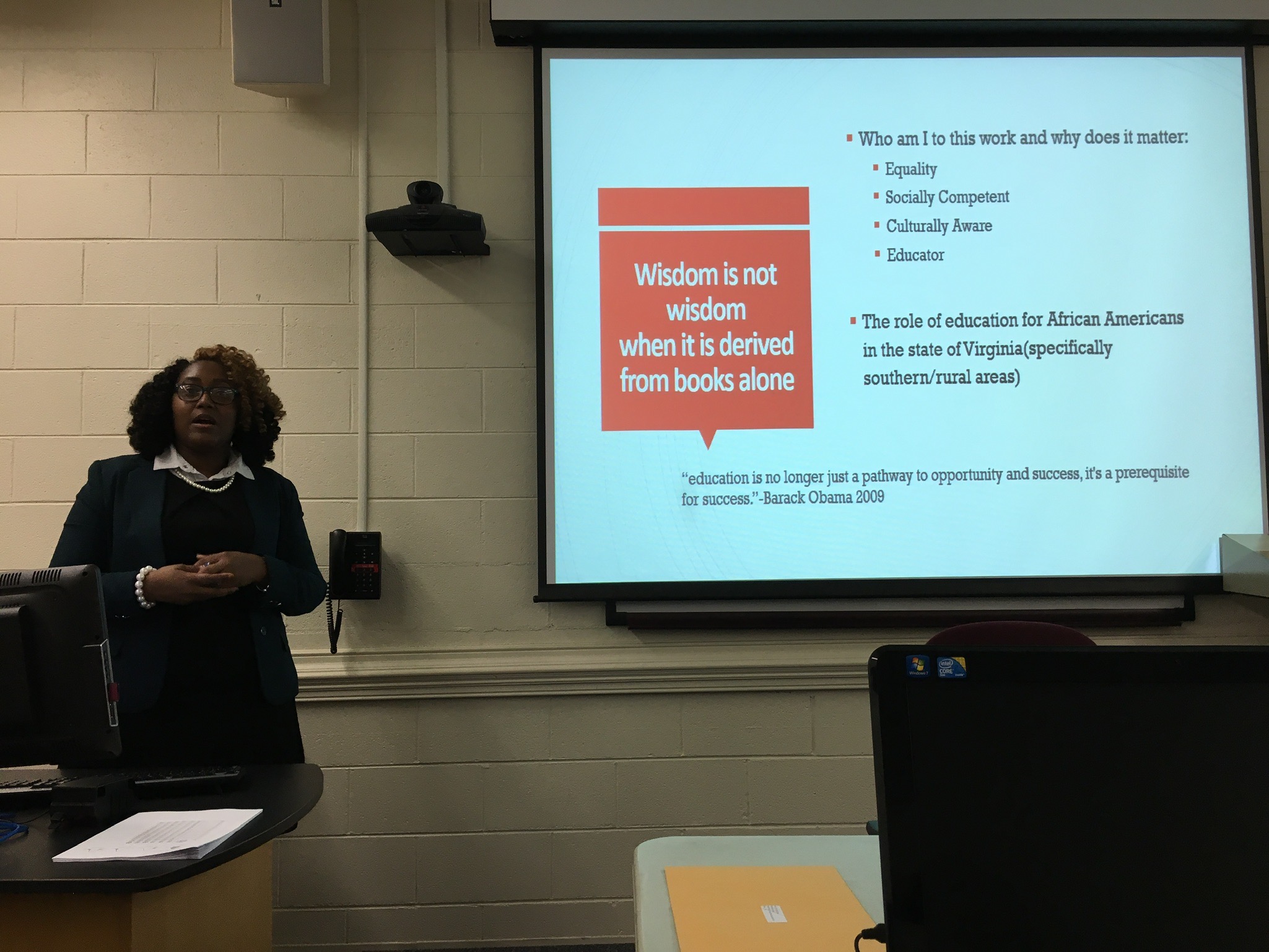
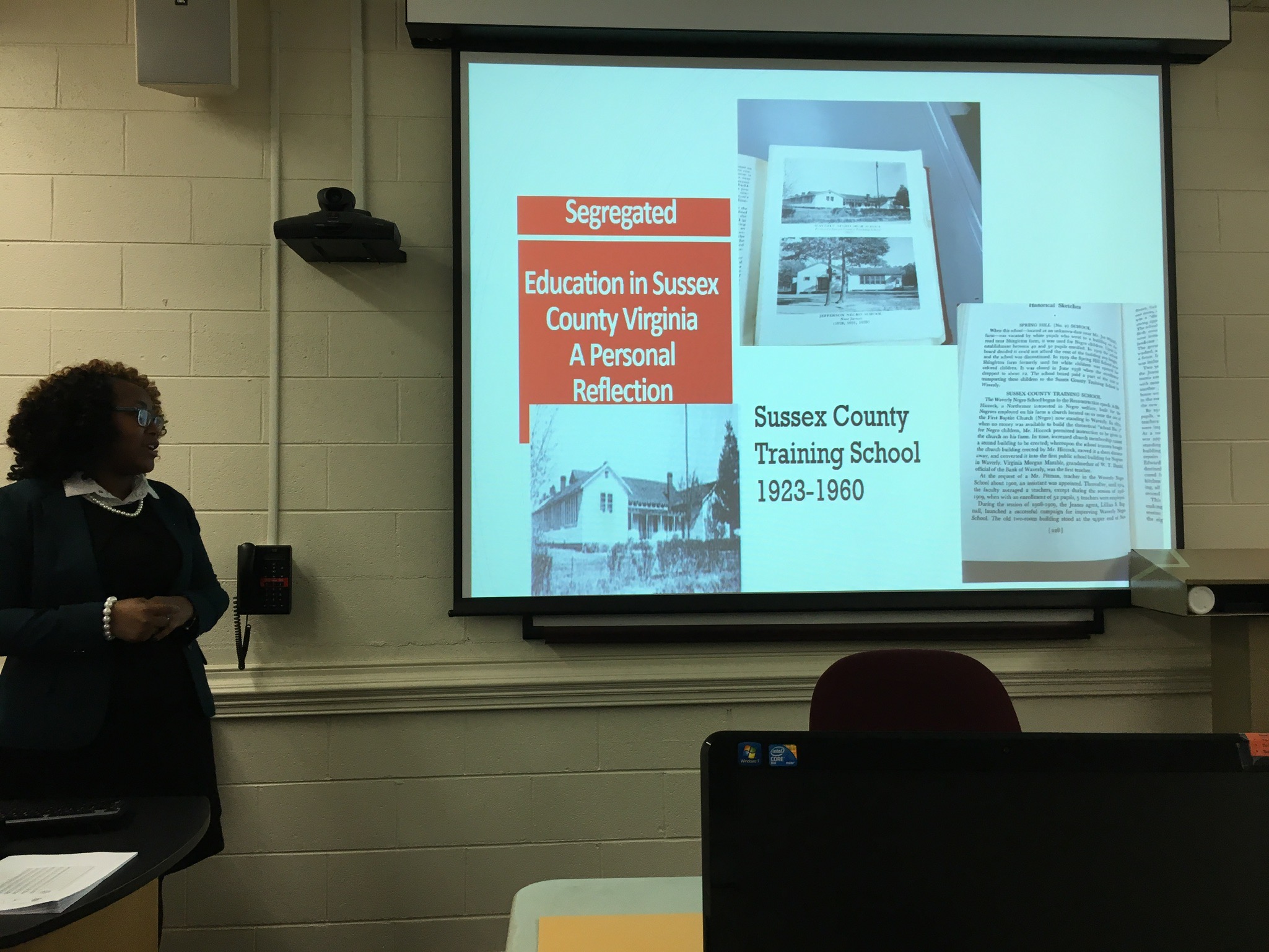
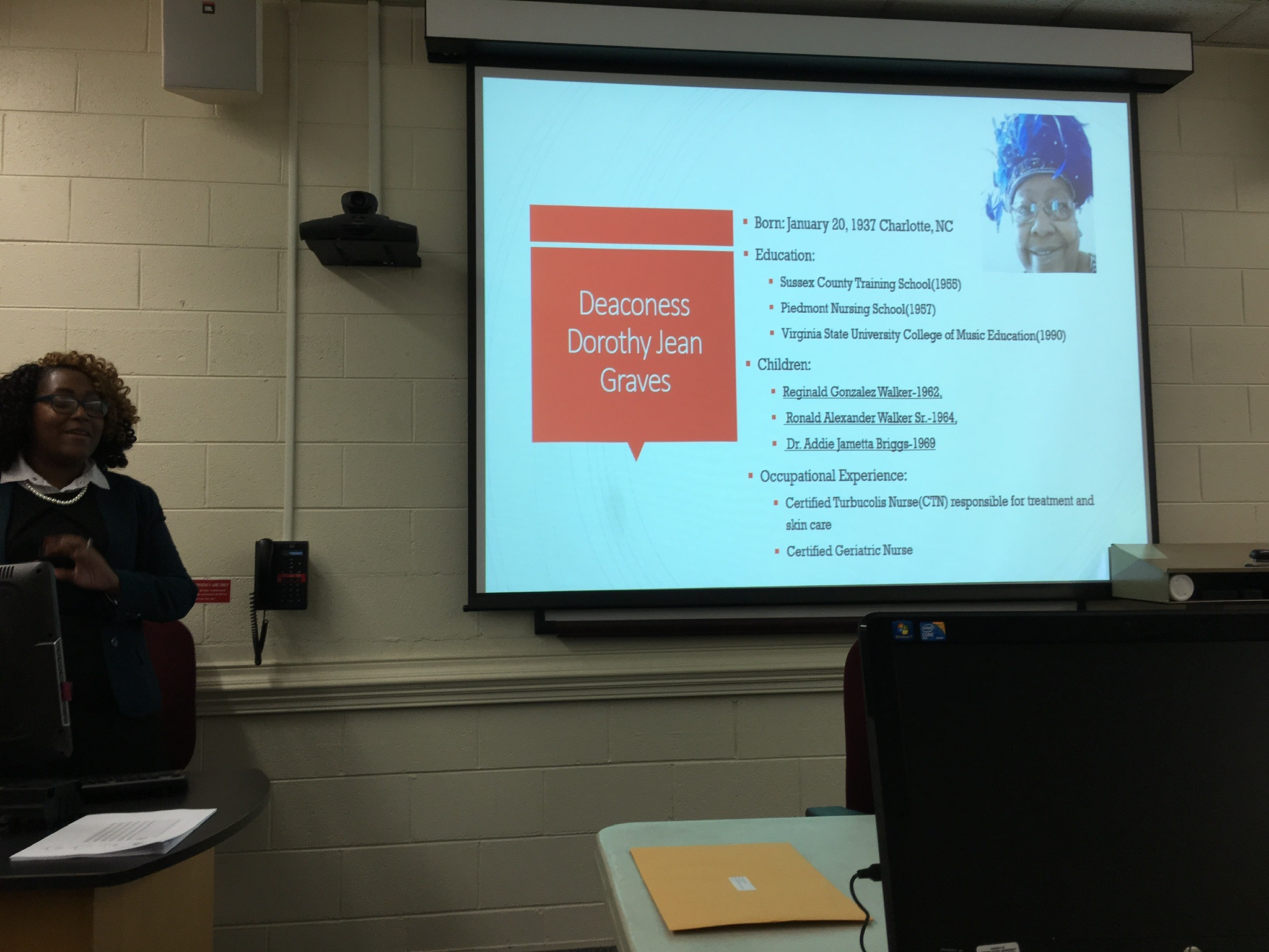
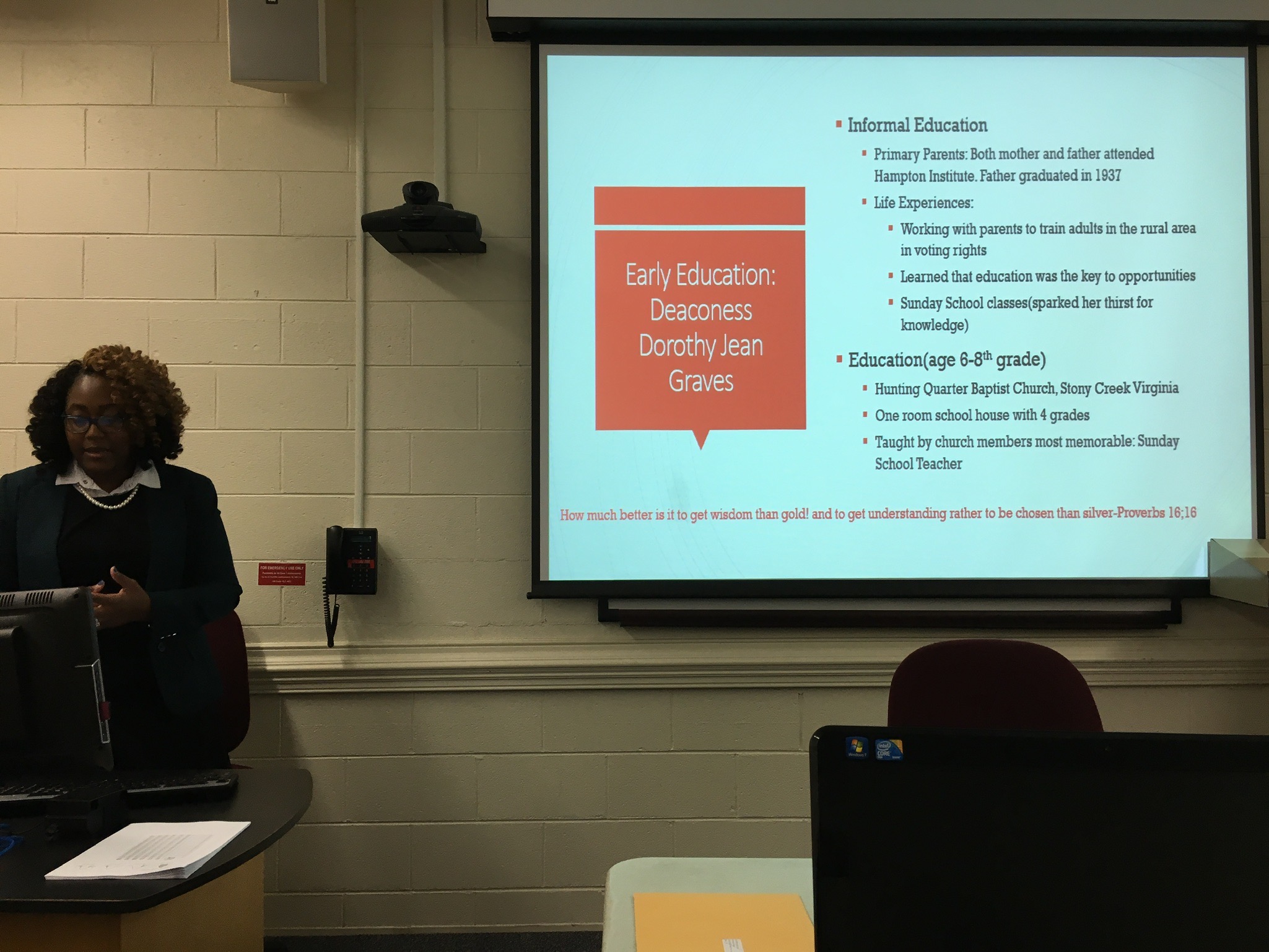
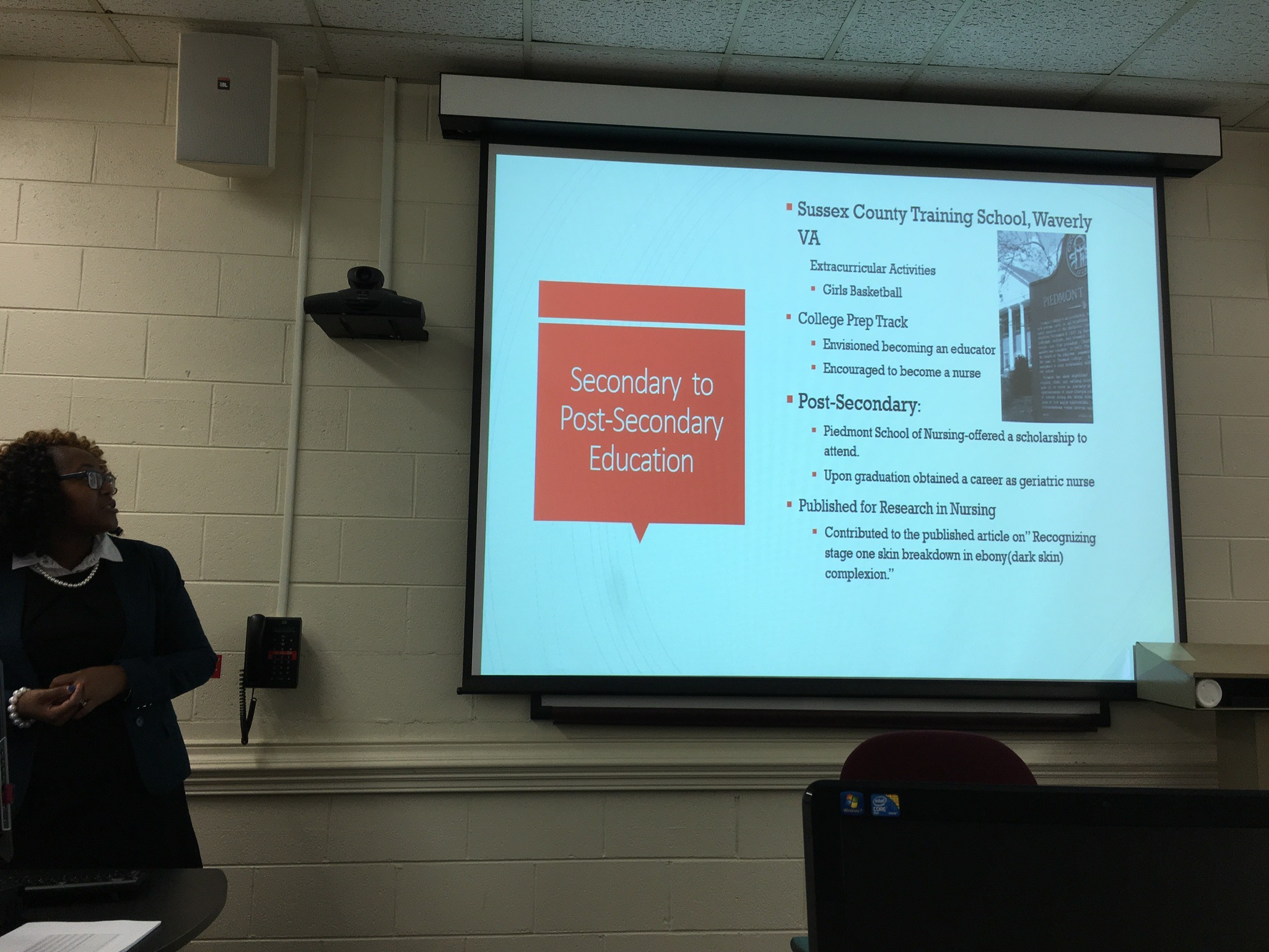
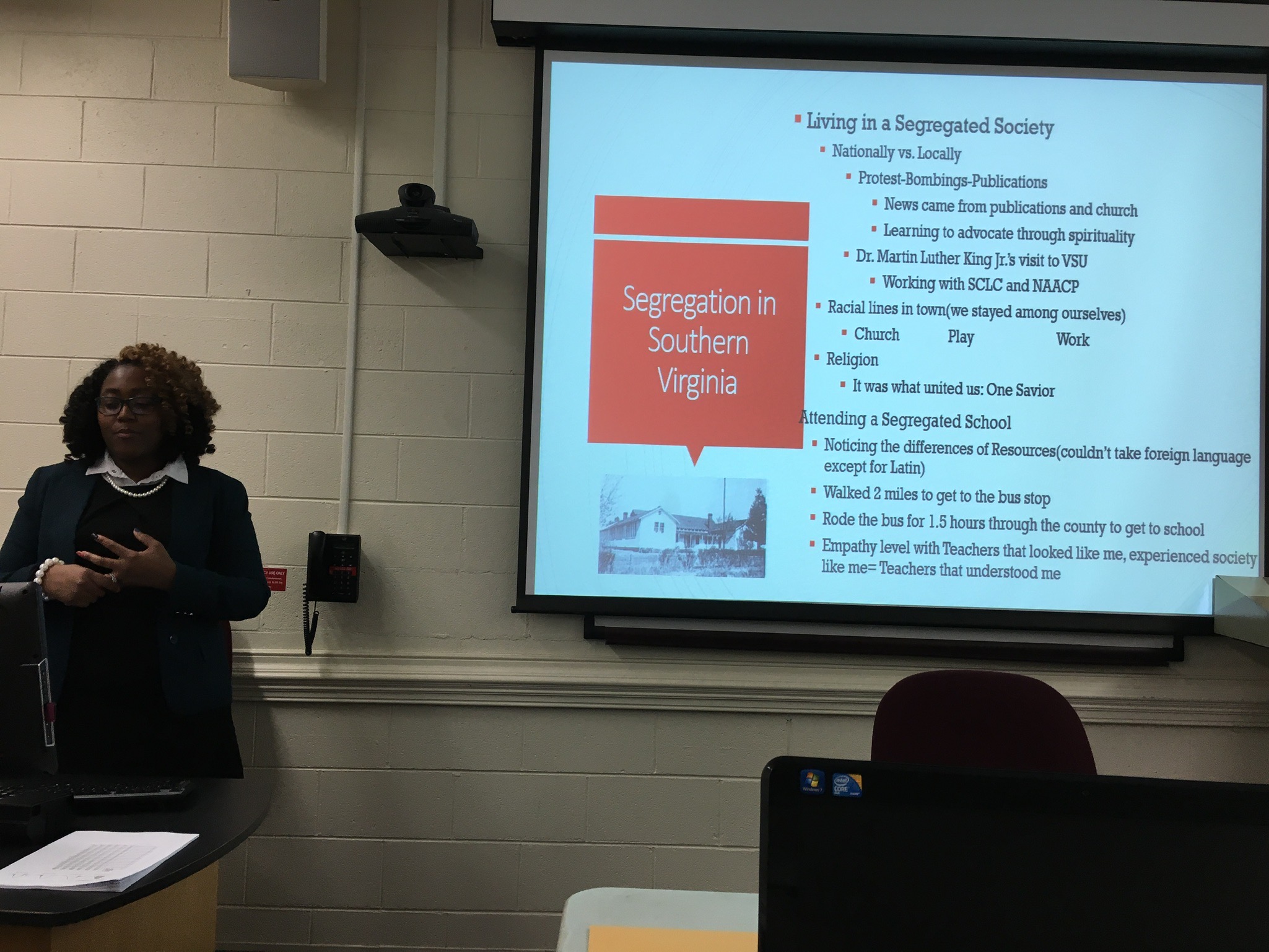
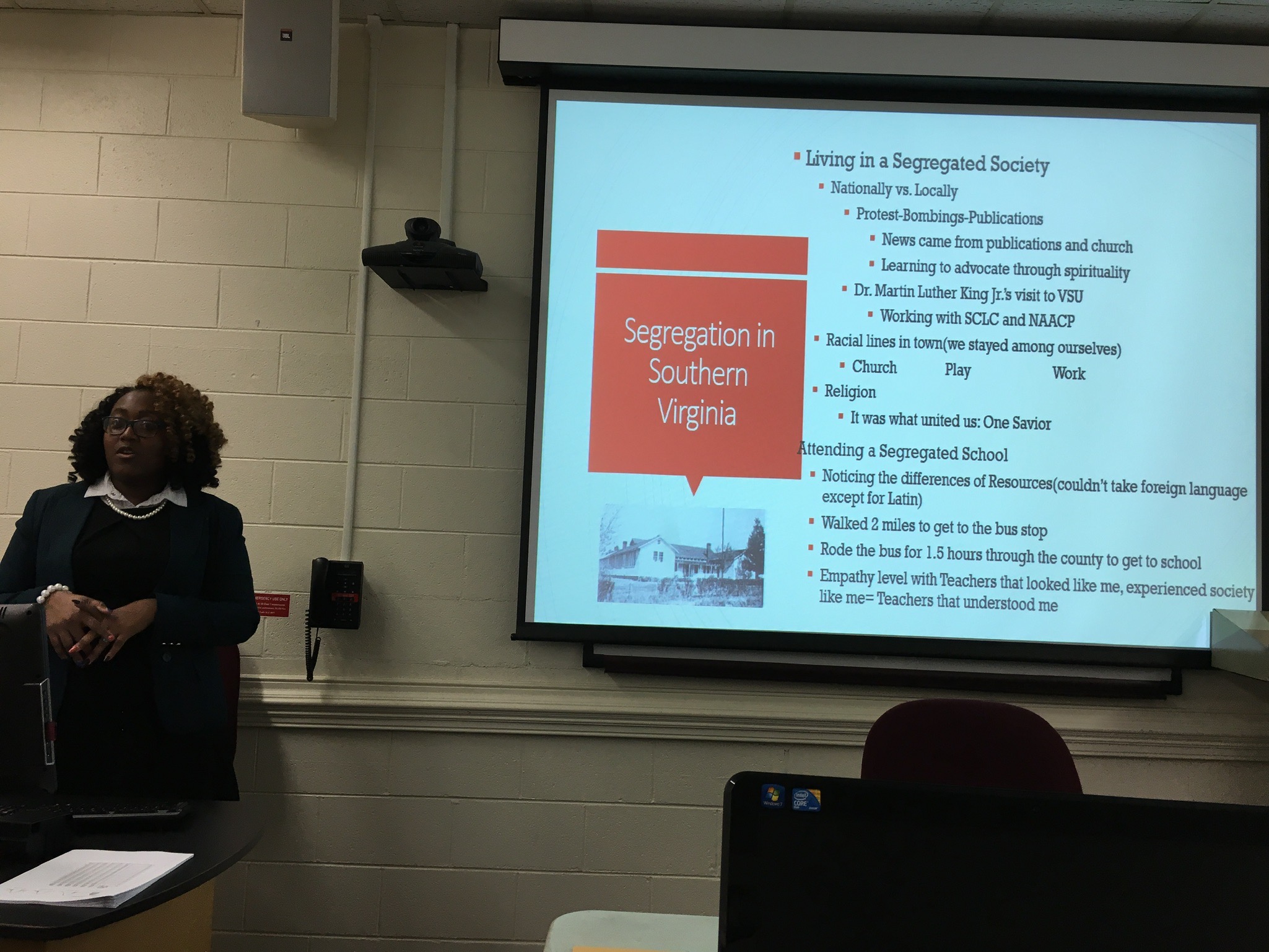
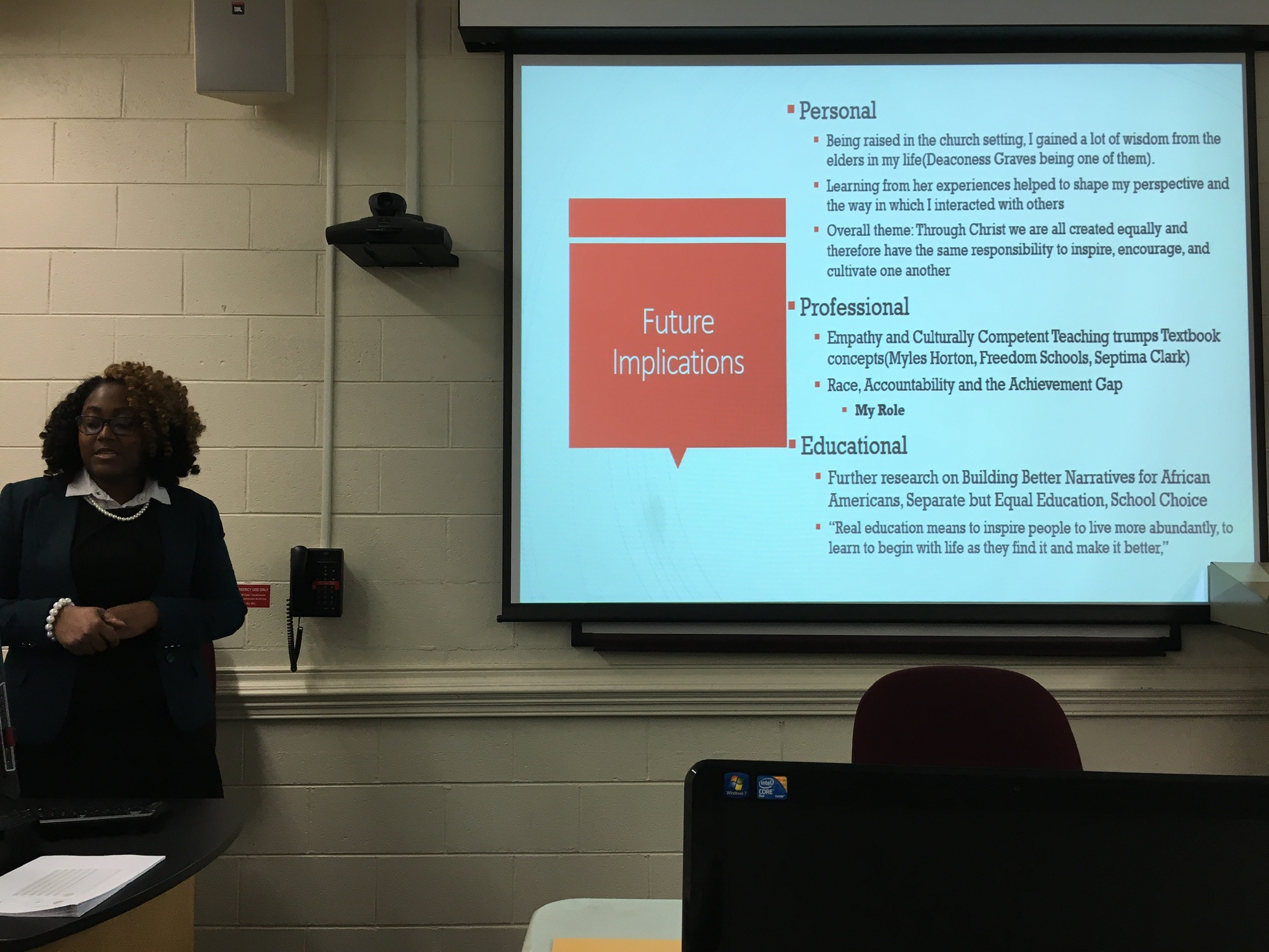
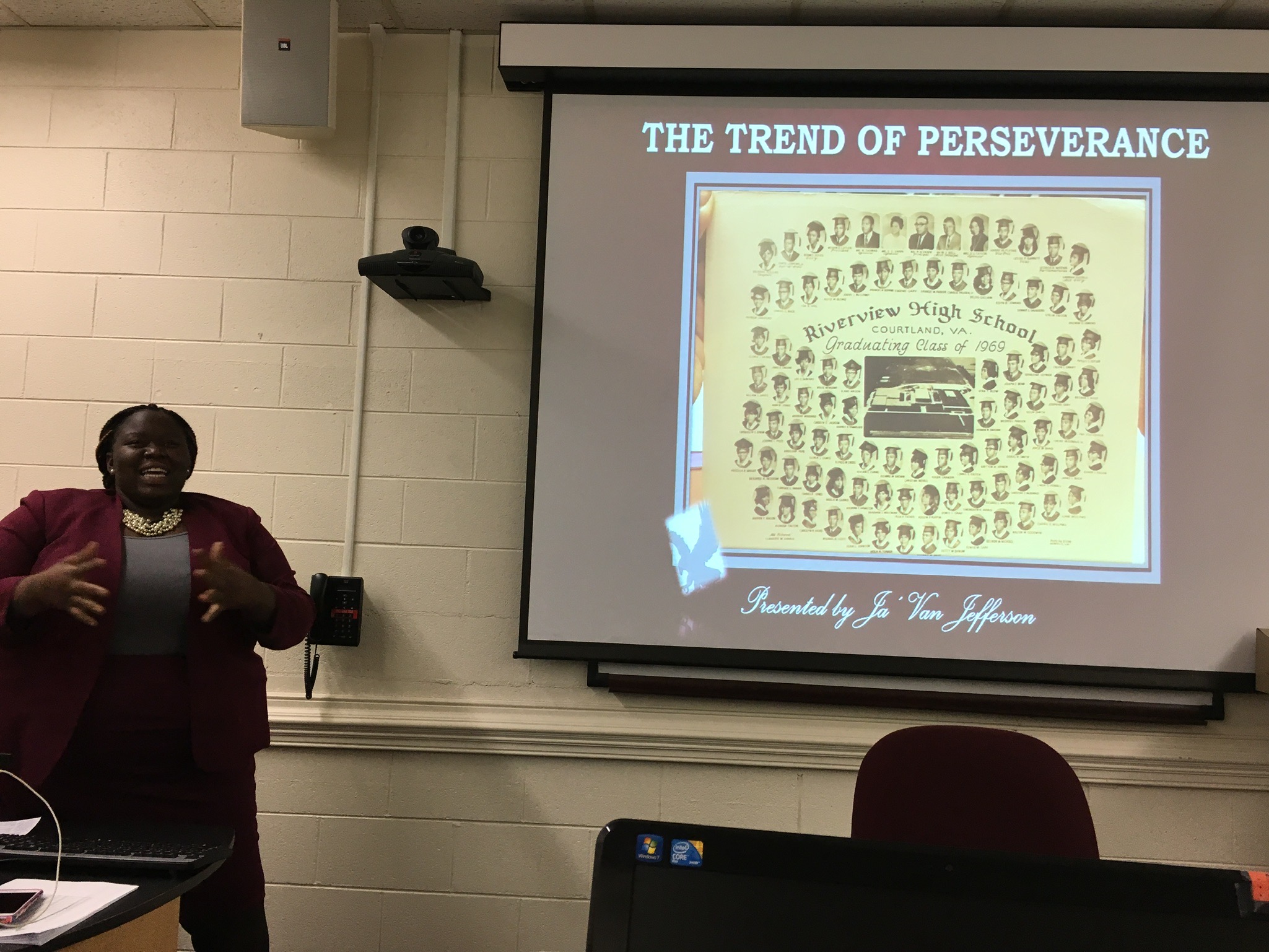
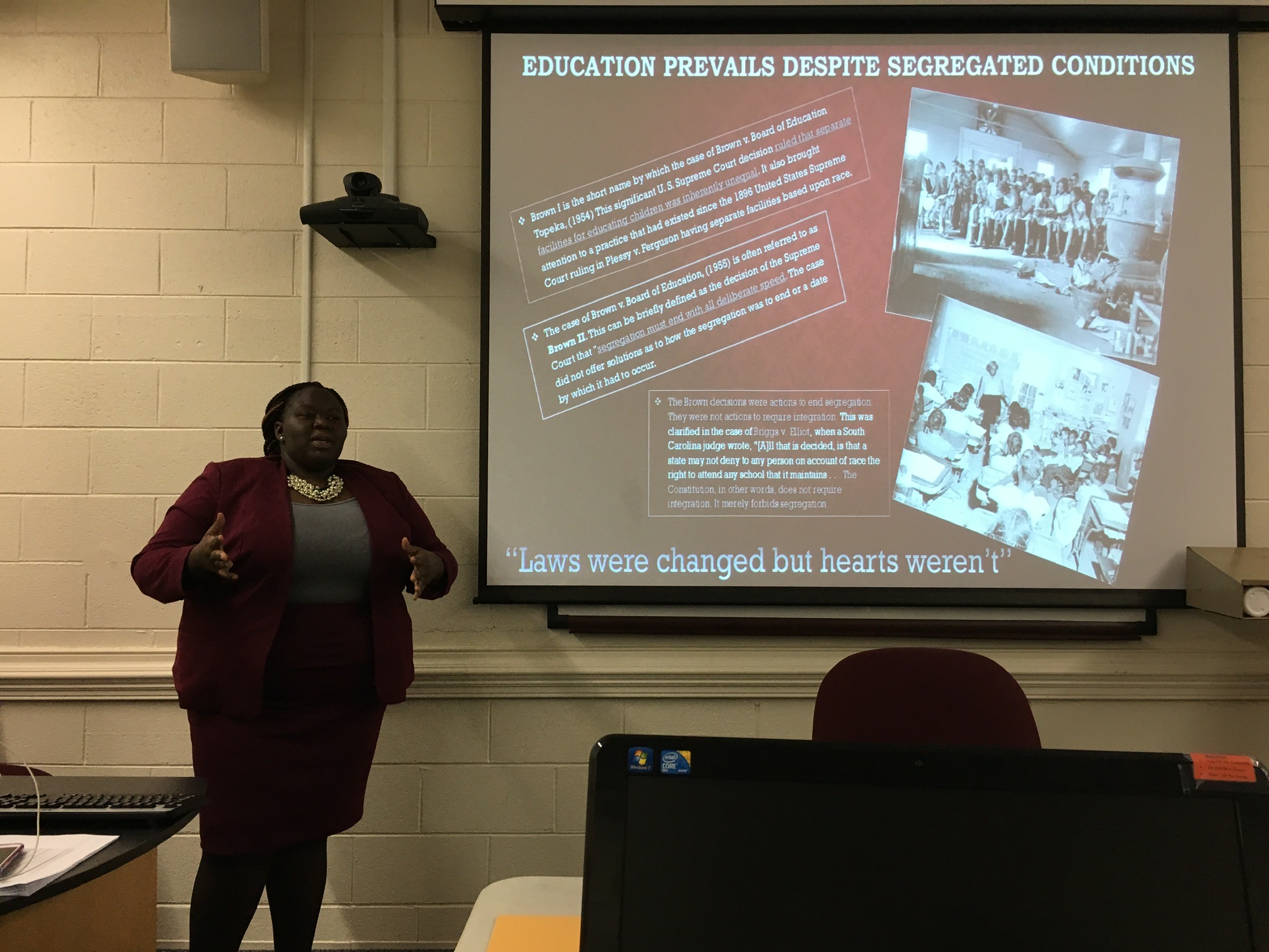
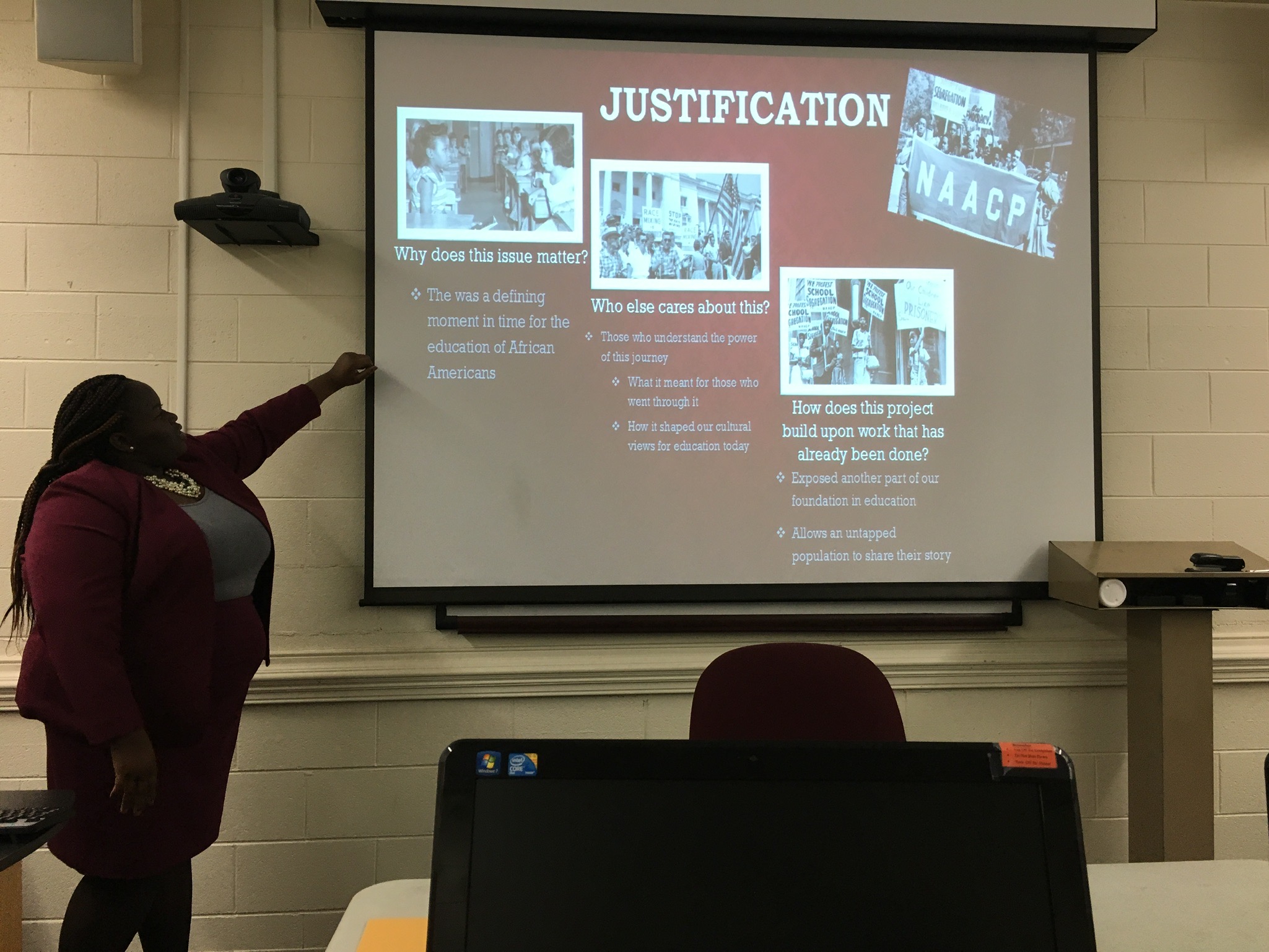

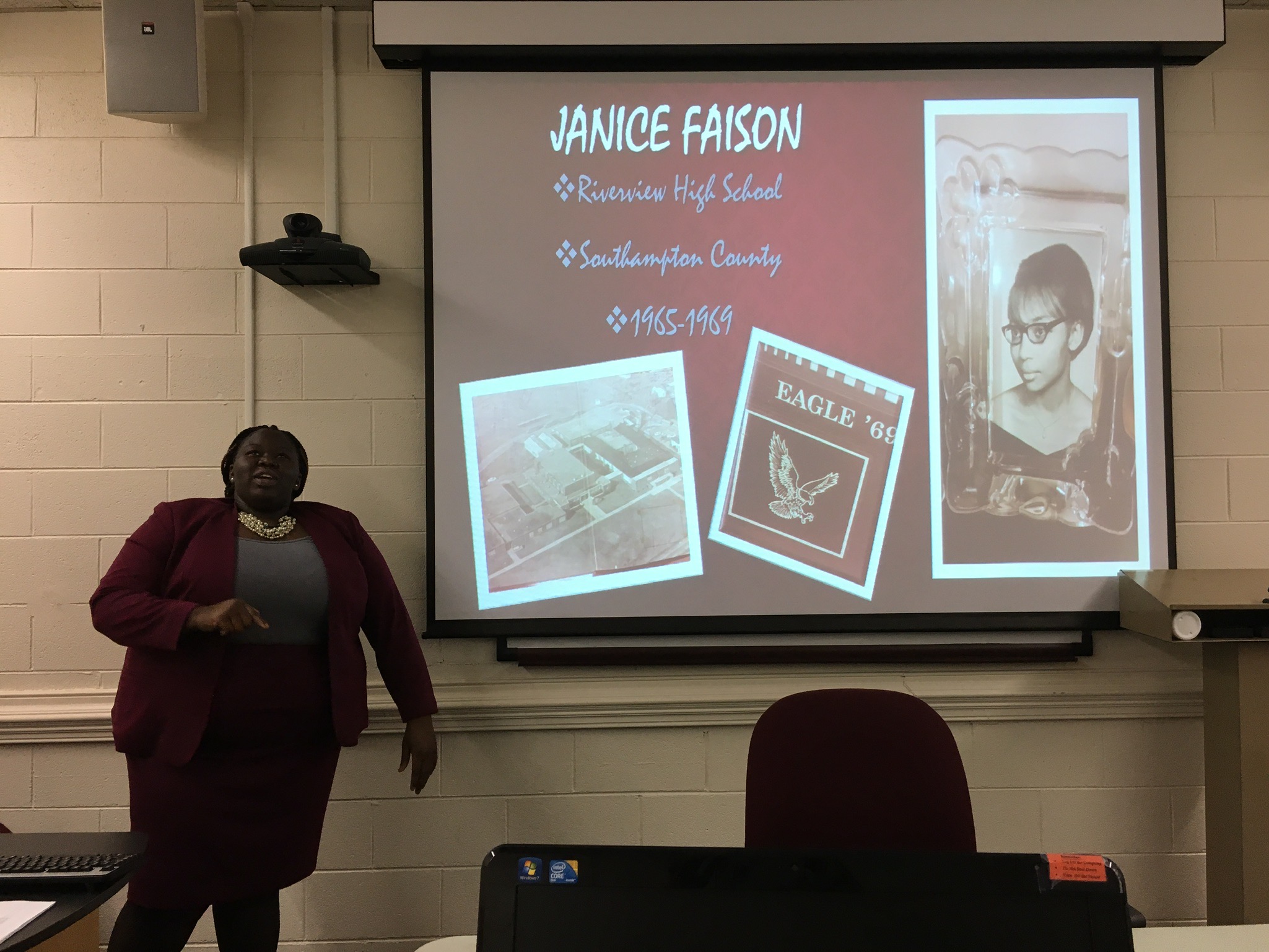
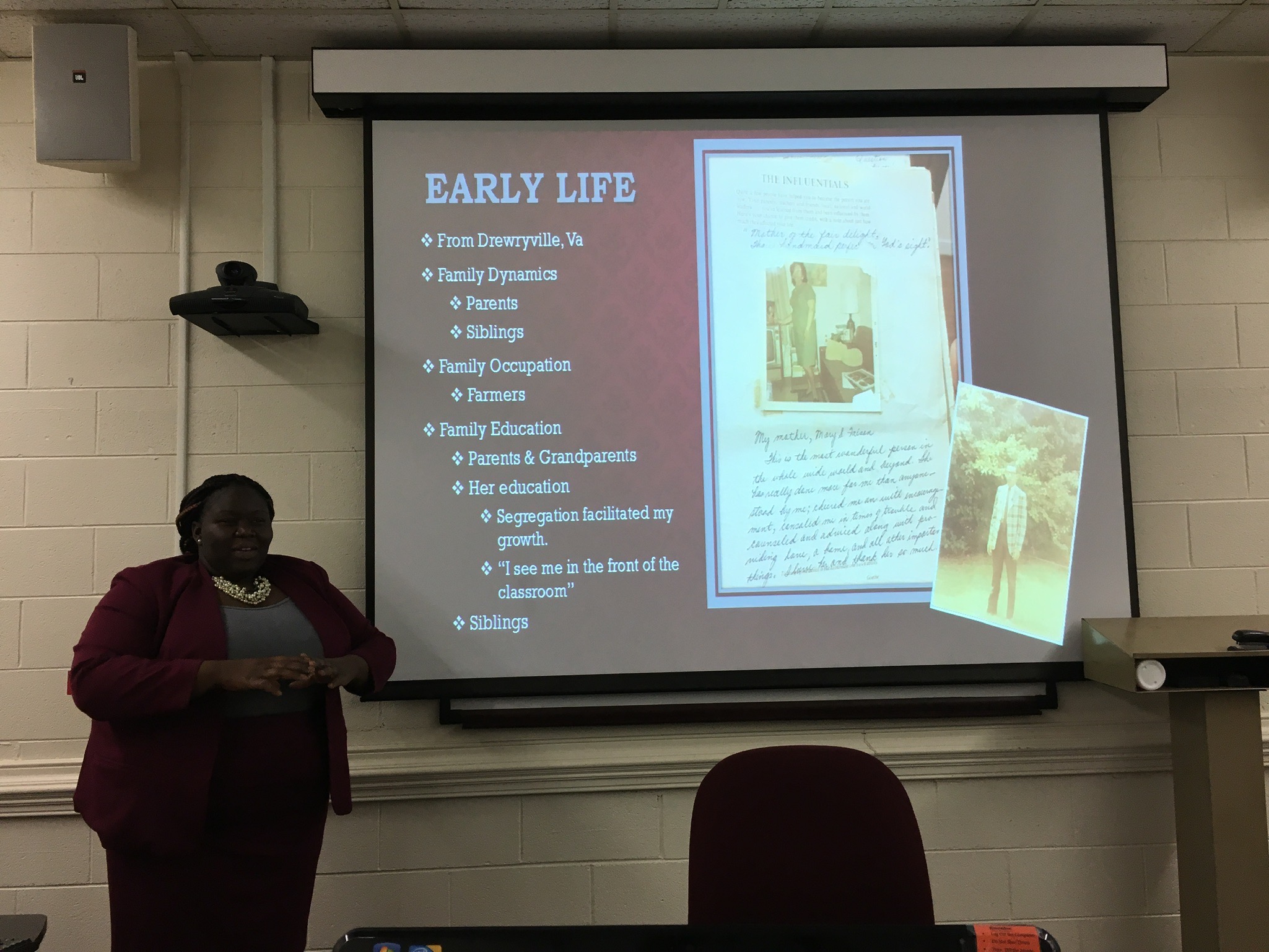
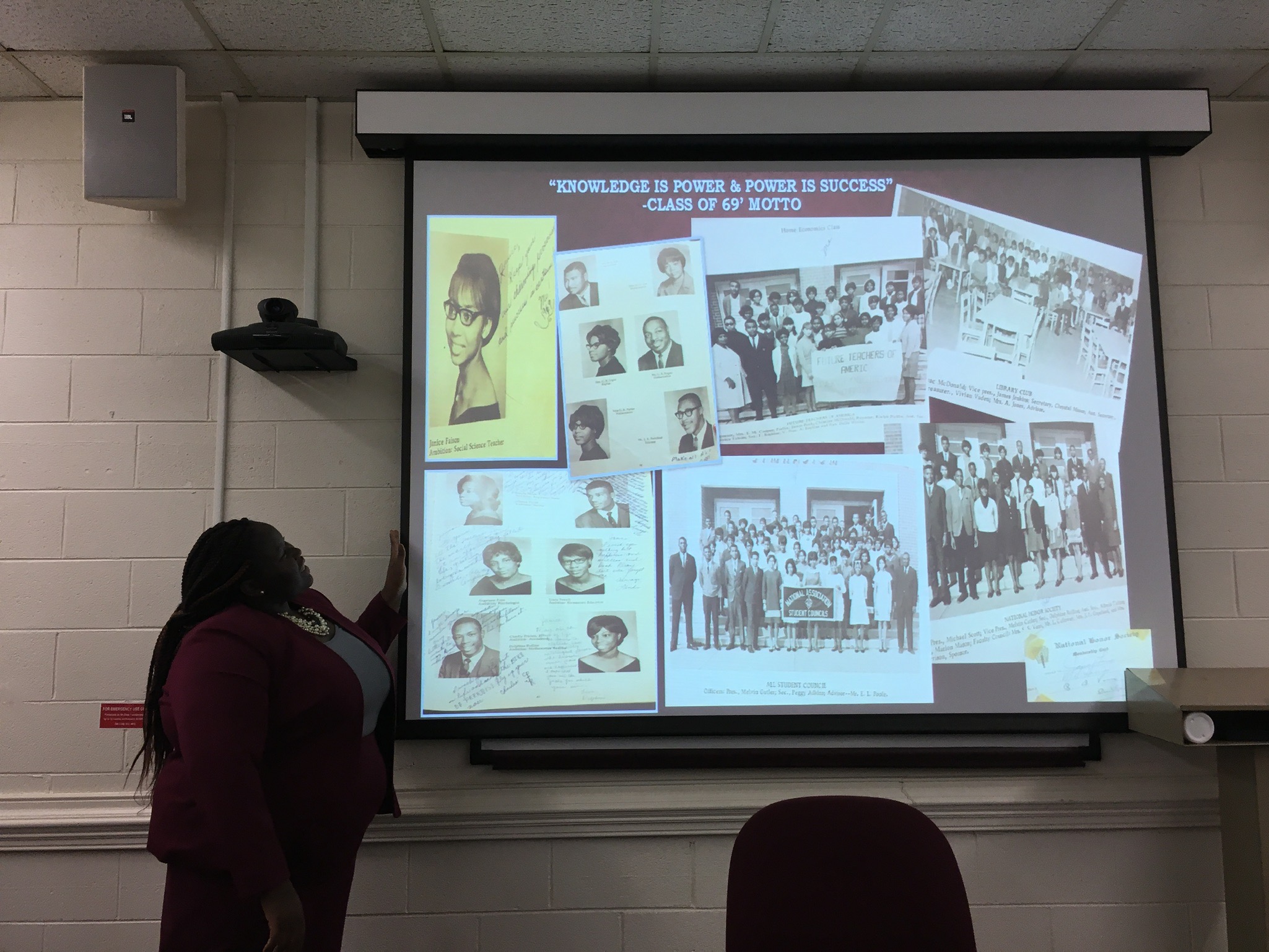
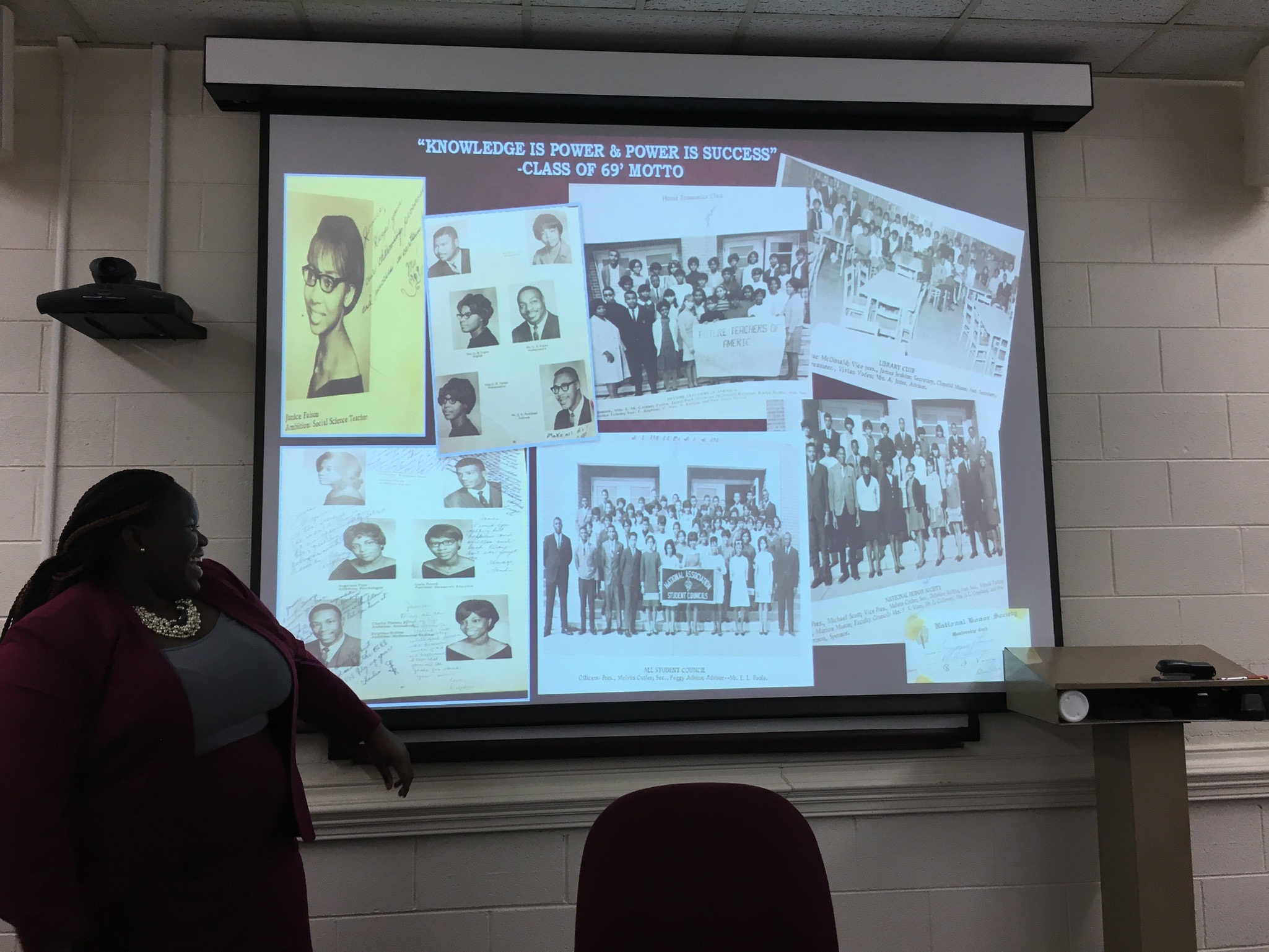
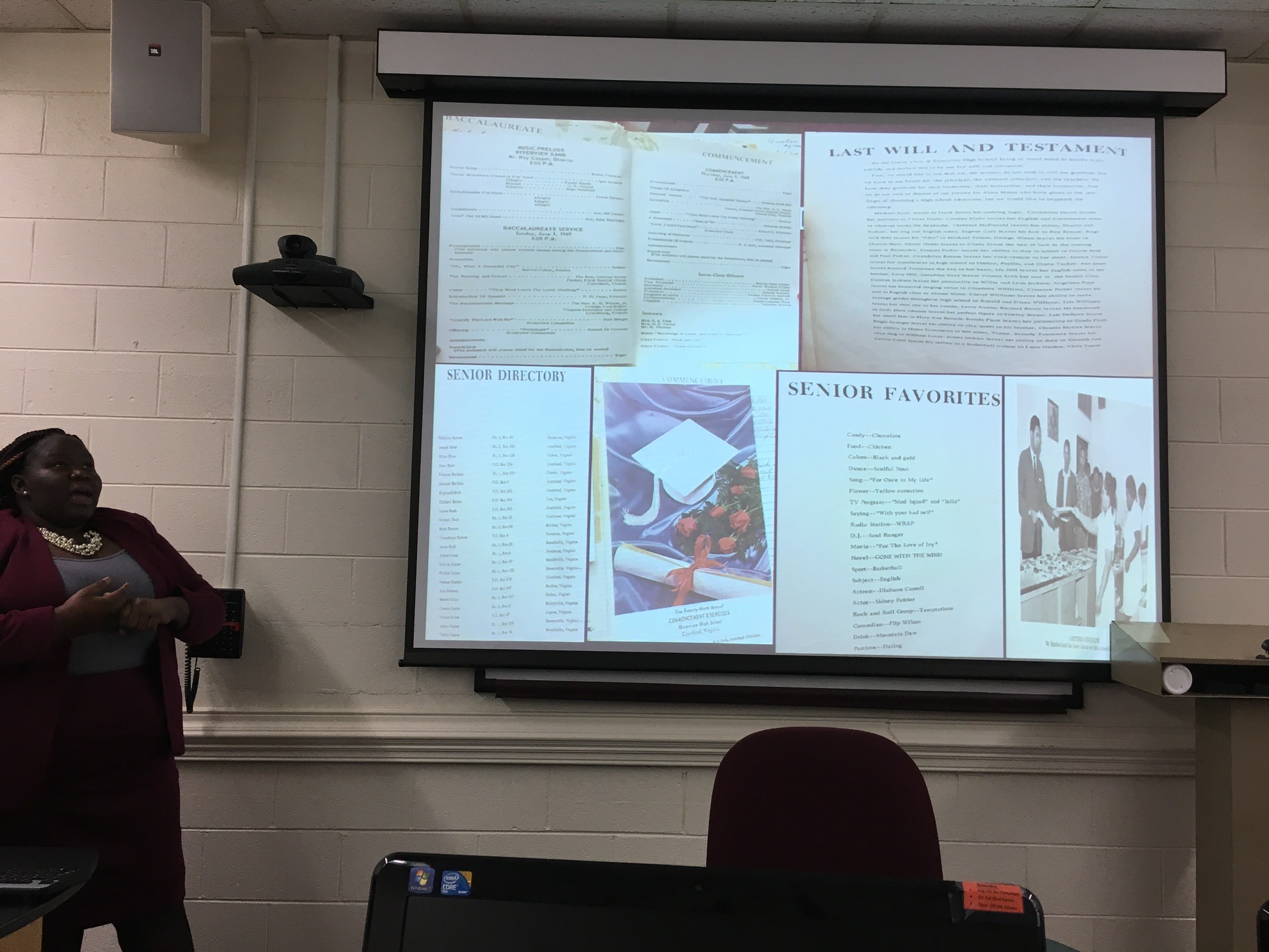
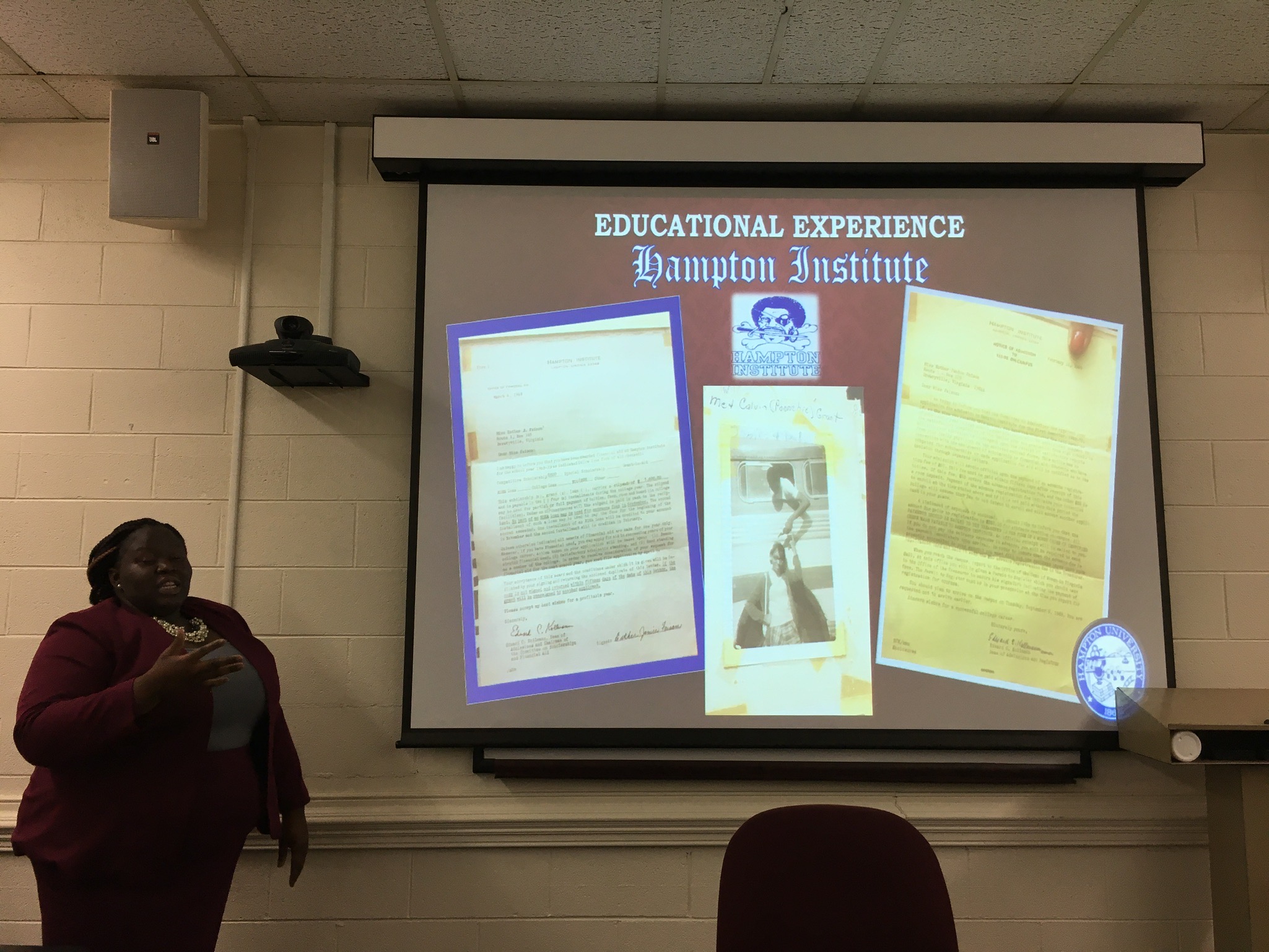
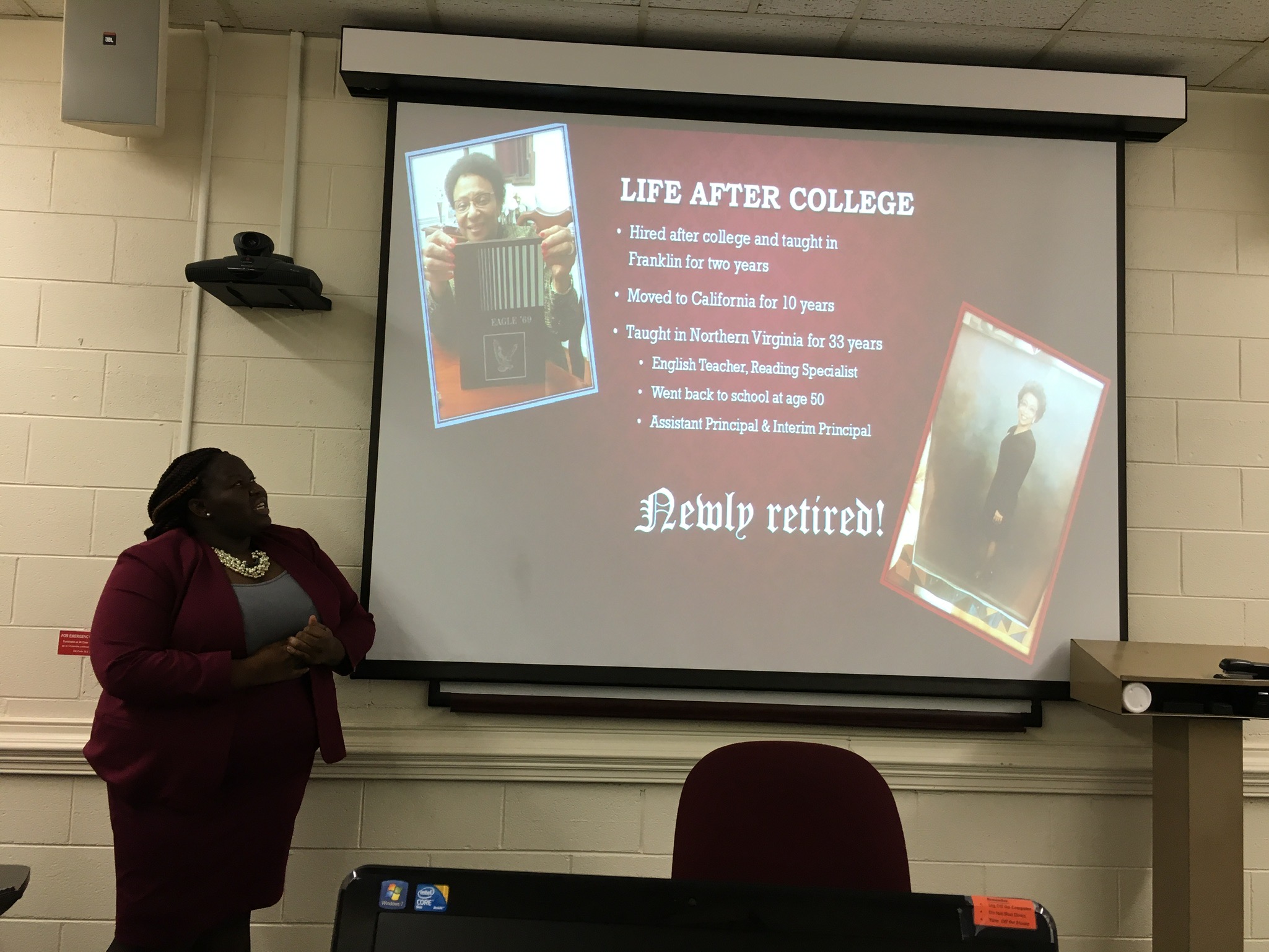



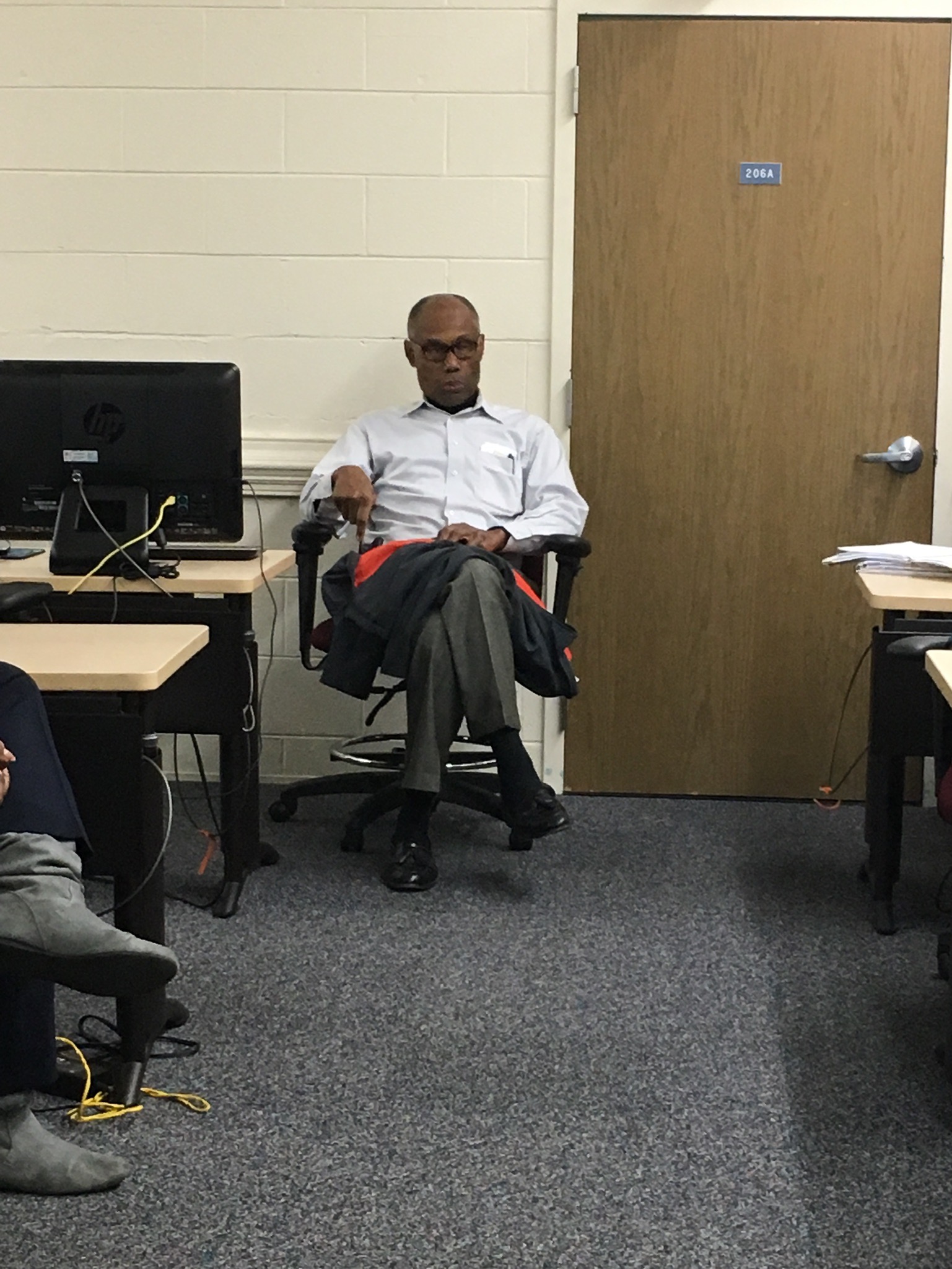
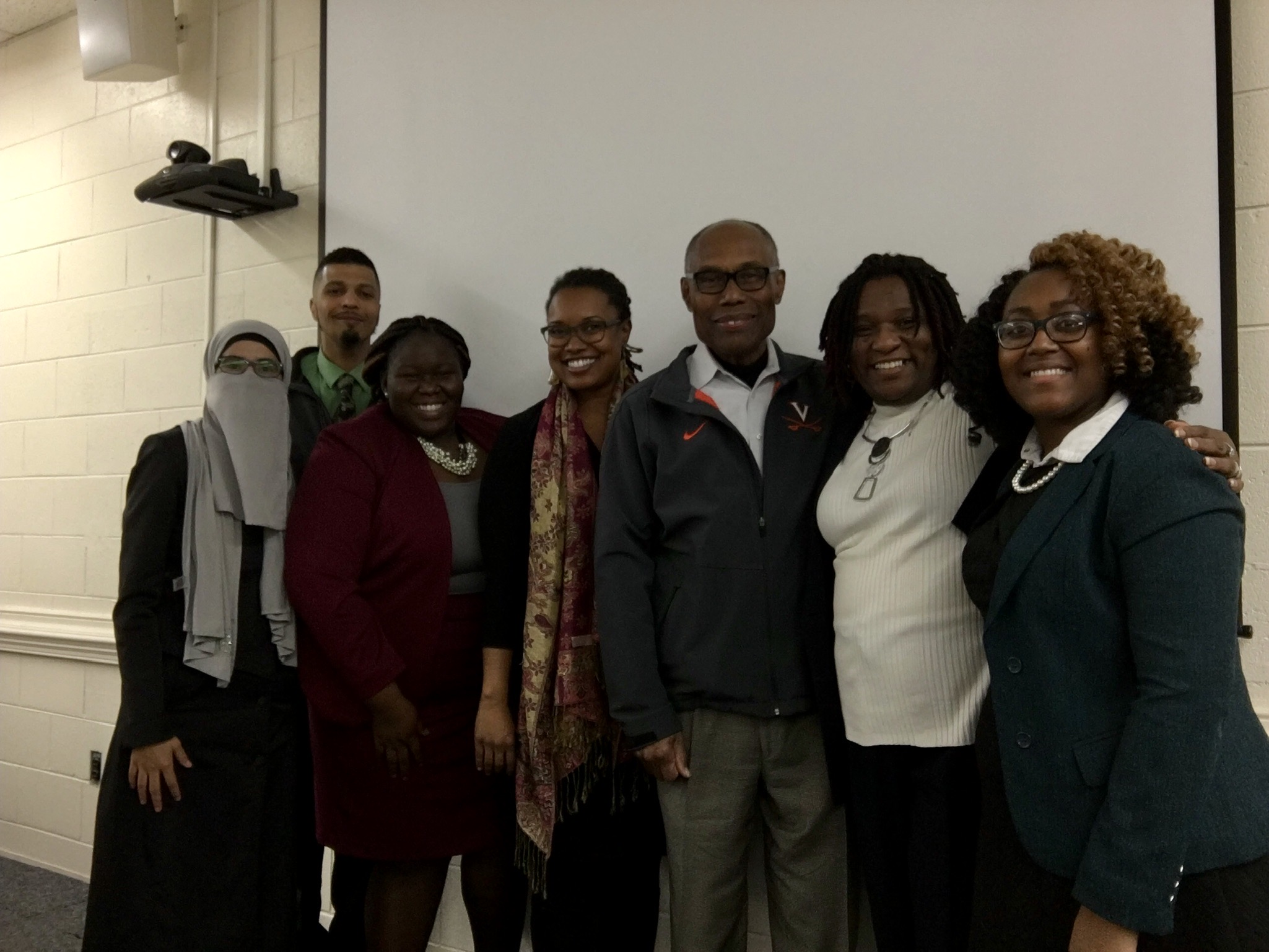
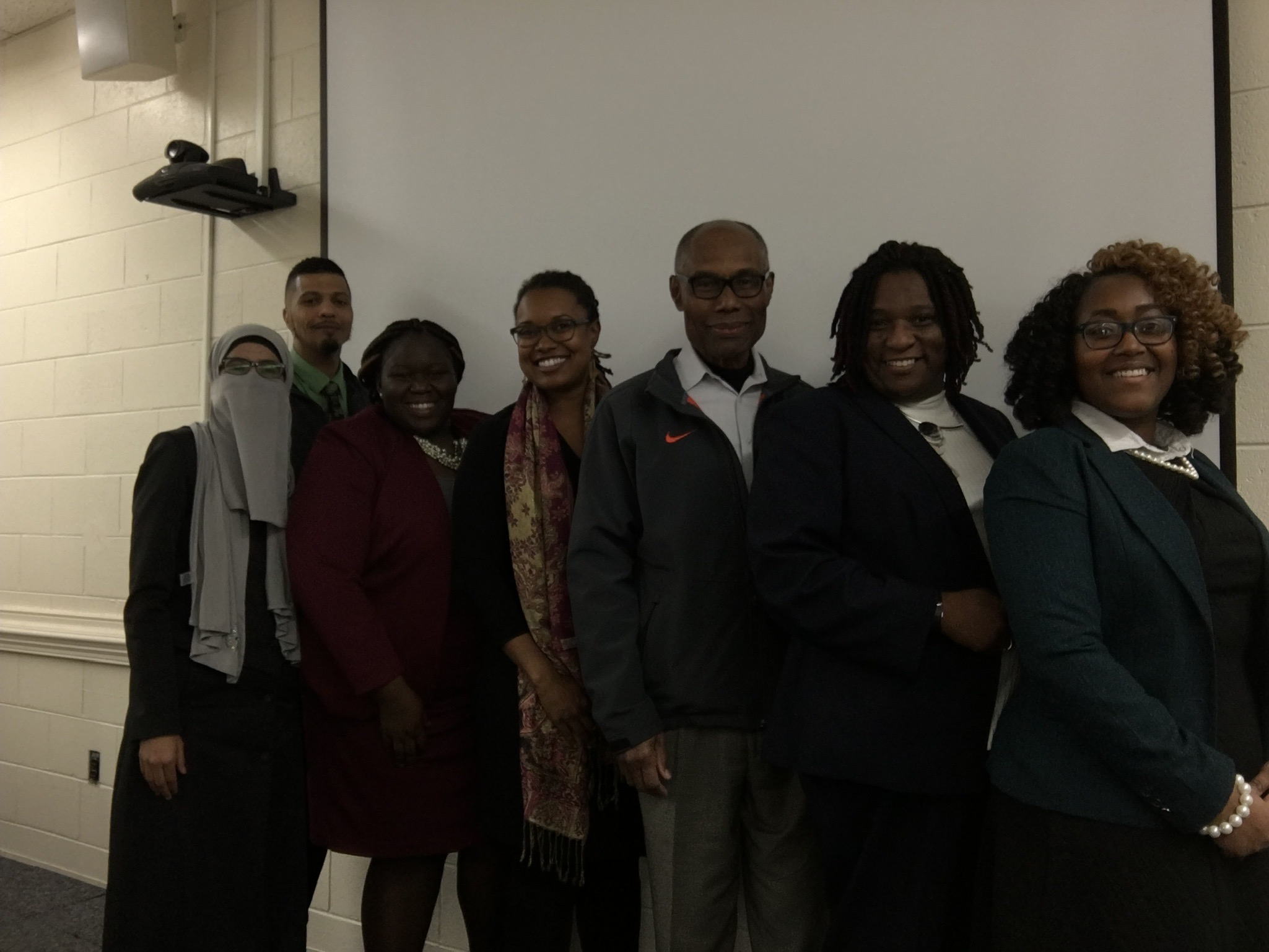
Below are some student reflections,
The best part of the interview, for me, came when we fell upon questions about segregation, race relations between blacks and whites in the county, and what that all meant for her as an African-American woman. This highly charged, segregated, and political time has become the fabric of her life, and it shined through in every question.
— Latorial Faison’s interview with Rev. Dr. Lillie Adkins Faison.
What stood out to me during the interview was the discussion on how she preferred attending school when they were segregated. Mattie Hicks-Drewery explained that during segregation she knew that white people didn’t like her and she was okay with that because the Caucasian people were honest about disliking her; however, the problem occurred when she attended school in Philadelphia, where integration was more prevalent in the North.
— Marseille Maxey’s interview with Mattie Hicks-Drewery.
